The Most Hard-to-Believe Fact About Every State in America
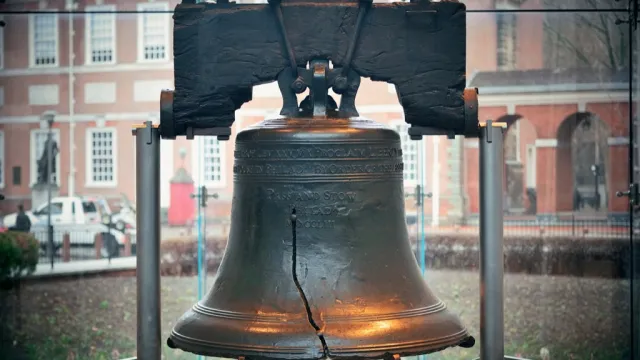
America is an amazing place filled with magical locations and jaw-dropping natural wonders. But there are also plenty of beautifully bizarre and fabulously freaky facts about every state in the U.S.—and some of them are just so wild, they’re almost impossible to believe.
For example, can you guess which state had wild camels as recently as 1890? Or which one got its name because an aspiring politician lied about knowing a Native American language? Well, buckle up, because you’re about to find out. These are the hardest to believe—and yet totally verifiable— facts about every state.
Bear wrestling was legal in Alabama until 1996—and became so again in 2015.

Bear wrestling was once a popular attraction in Alabama barrooms and fairgrounds. Spectators would look on in excitement as strong men and pro wrestlers attempted to pin live bears—usually of the grizzly, black, or brown varieties—to win money and prove their strength. The bears didn’t just wander in off the street, though, they were owned and trained as fighters. One of the most famous was Terrible Ted, who wrestled pros like Jerry Lawler and Rocky Johnson (the father of Dwayne “The Rock” Johnson).
The practice was officially made illegal in 1996, but the law was repealed because it was “obsolete” in 2015. A sponsor of the original law put it this way: “I don’t mind anybody who wants to fight a bear if they just go out in the woods and fight the bear on his own terms.”
The easternmost and westernmost points in the U.S. are both in Alaska.
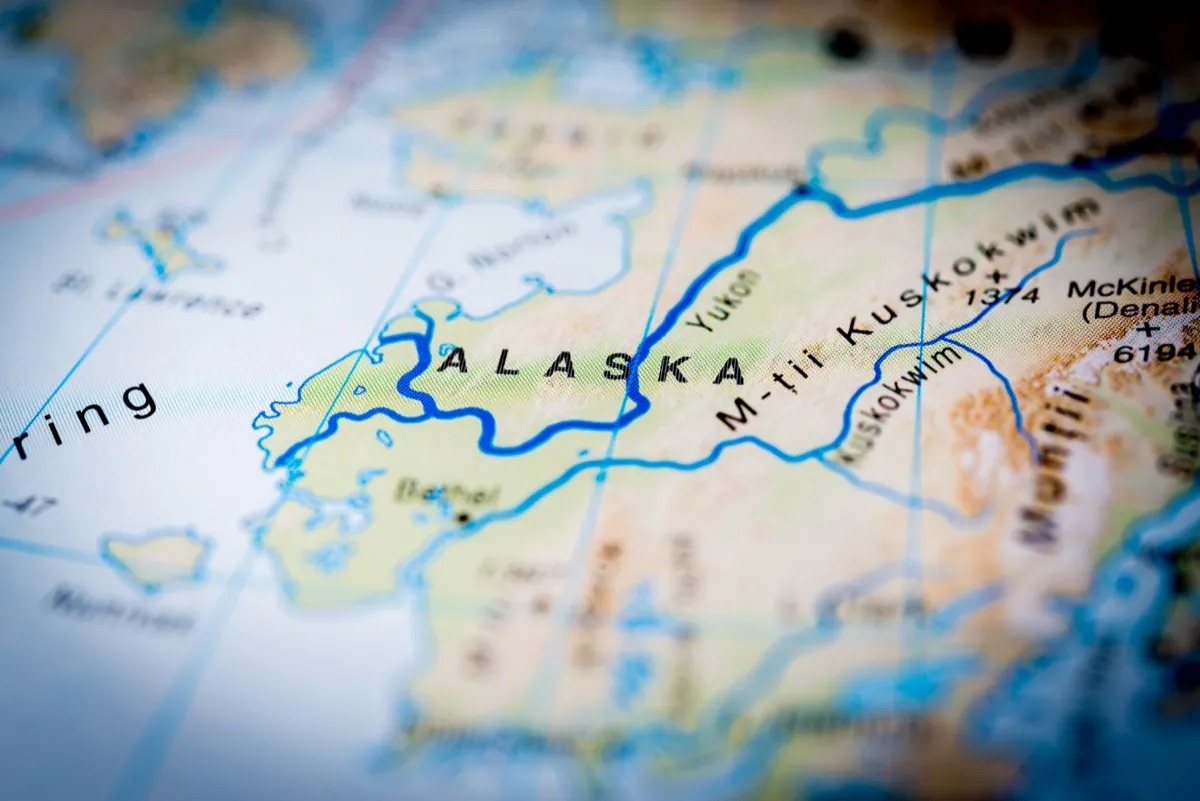
While the bulk of Alaska sits firmly in the Western Hemisphere, the Aleutian Islands extend all the way into the Eastern Hemisphere. That means the state lies in two hemispheres and contains the easternmost part of the U.S., Semisopochnoi Island, and the westernmost part of the U.S., Amatignak Island.
Wild camels could be found roaming around Arizona in the late 19th century.
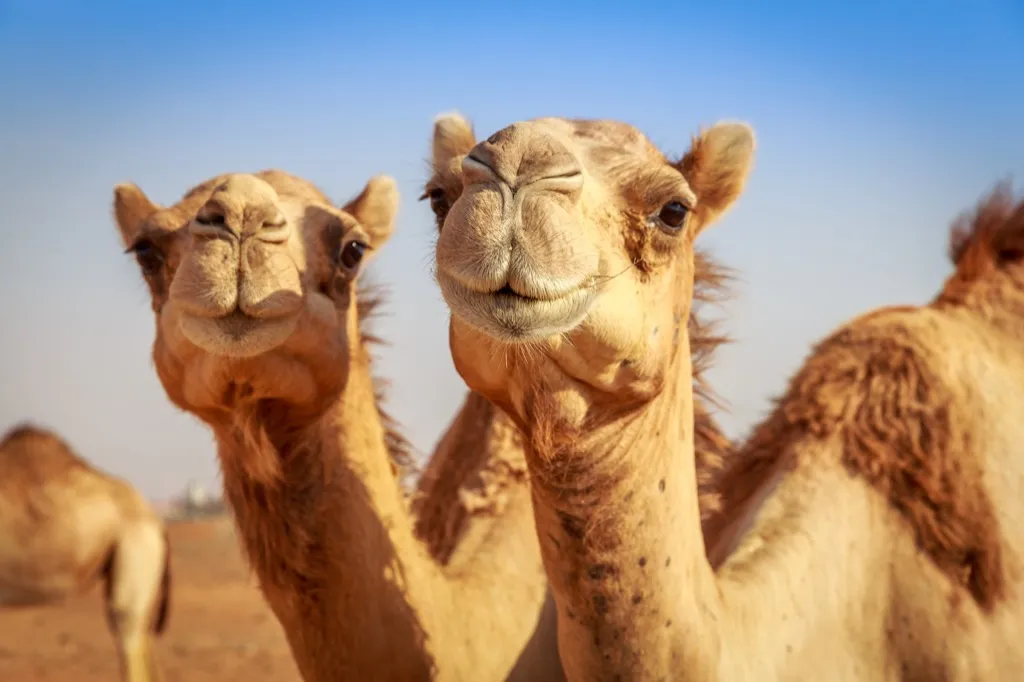
It wouldn’t be unusual to spot a wild camel somewhere out in the Gobi Desert, but in the late 19th century you could also find them roaming around Arizona. Back in 1855, the U.S. government spent $30,000 importing 75 camels for military use (they thought the animals would be useful for shuttling supplies between remote military outposts), according to Smithsonian. When the plan didn’t work out as expected, parts of the herd were auctioned off one by one. And while one ended up in the Smithsonian Museum, other camels were spotted wandering the state as late as 1890.
Arkansas is home to one of the largest producers of handmade dulcimers.
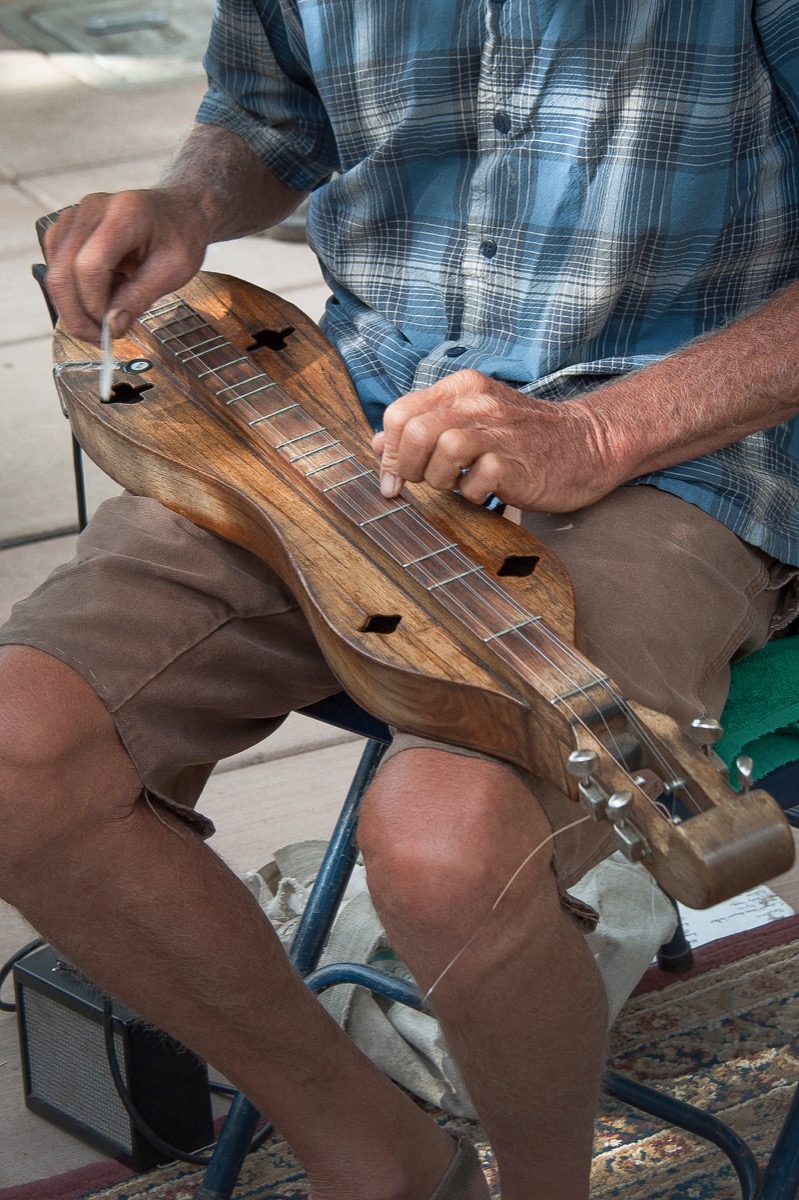
No one will blame you if you have no idea what a dulcimer is. The stringed instrument is part of the zither family and while it delivers a lovely lilting sound, it hasn’t quite earned the same level of fame as the guitar or violin. Despite that, Arkansas still turns out its fair share of the instruments. In fact, more dulcimers are made in Mountain View, Arkansas than nearly any other place in the world. And while that may be impressive, the fiddle won out as the official state instrument.
California has about 10,000 earthquakes a year.

If you live in California, earthquakes are a part of life. But you might not have realized just how frequently they occur—since most of them are essentially undetectable to humans. According to the United States Geological Survey, around 10,000 earthquakes are recorded each year in Southern California. Luckily, only around 15 or 20 have a magnitude that’s greater than level four on the Richter scale.
Colorado is the only state to decline an invitation to host the Olympics.

Making a bid to host the Olympic games is a lengthy, costly, and complicated process. However, when the International Olympic Committee awarded the 1976 Winter Olympics to Denver in May 1970, those who lived in the state weren’t as excited as you might expect. In fact, there was huge opposition to the plan and in 1972 voters in a state referendum decided they did not want the state to host the games due to the astronomical cost and environmental concerns. So far, Colorado is the only state ever reject the games. The event was ultimately held in Innsbruck, Austria.
A diner in Connecticut served the first hamburger in the U.S.

Burger’s up! According to the Library of Congress, the first hamburgers in America were served at Louis’ Lunch, a luncheonette that opened in 1895 and is located in downtown New Haven near Yale University. Although the building faced demolition in 1974 to make way for a medical complex, the restaurant managed to prevail in court and keep things running. Today, generations after that initial burger flipped on the grill, the restaurant is still owned by the same family and “The Original Burger” is still on the menu for $6.75.
In Delaware, chickens outnumber people by more than 200-to-1.
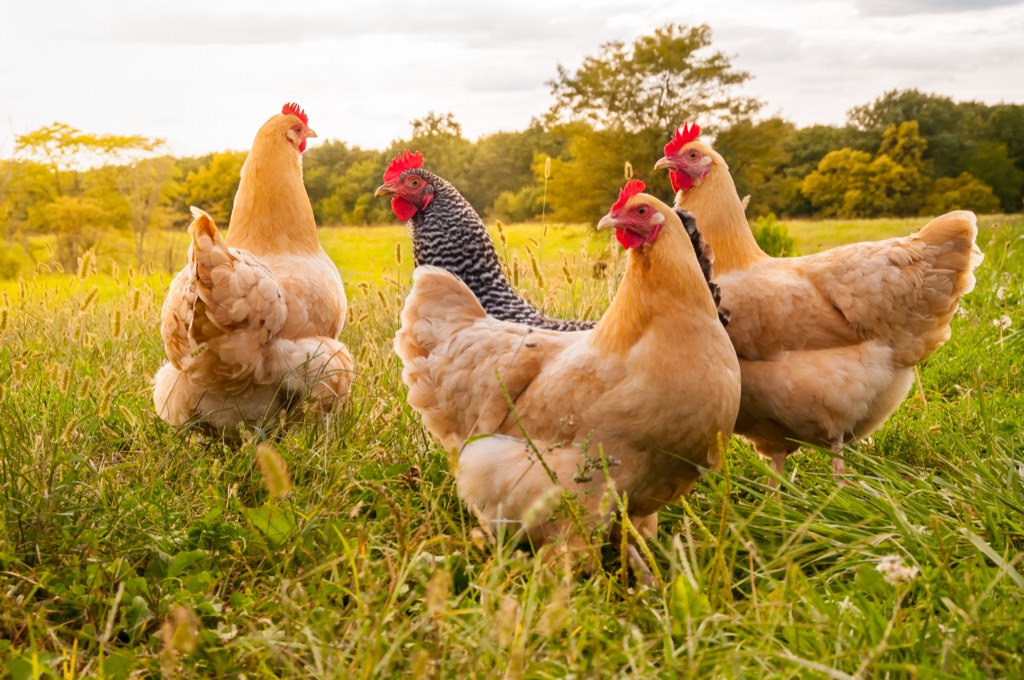
Delaware has a fast-growing poultry industry which means that farmers keep plenty of chickens around to meet the demand, according to the state’s local PBS and NPR affiliate. In fact, for every person in the state, there are around 200 chickens. And since there are nearly a million humans in Delaware, that means there are around 200 million chickens clucking about.
There are snails in Florida that can grow up to eight inches long.
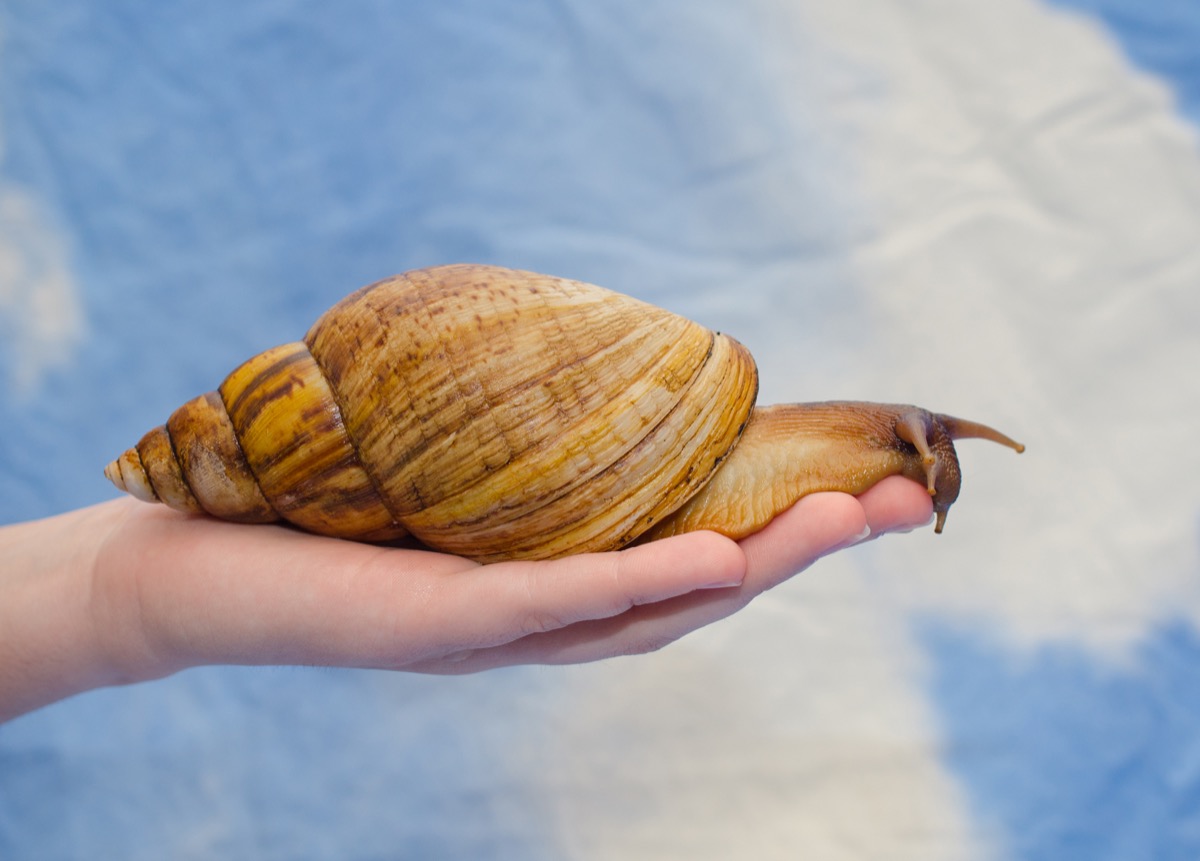
An array of fascinating, fabulous, and freakish creatures call the state of Florida home—and the giant African land snail is one of them. The critter is so unnerving, that when the Florida Department of Agriculture released a public service announcement warning residents about the snails, they had to assure everyone, “This is not science fiction. This is real.”
An invasive species, the giant African land snail can grow up to eight inches long and live up to nine years, according to CBS News. On top of that, they can lay up to 1,200 eggs a year.
In Georgia, a taxidermy opossum named Spencer is dropped on New Year’s Eve.
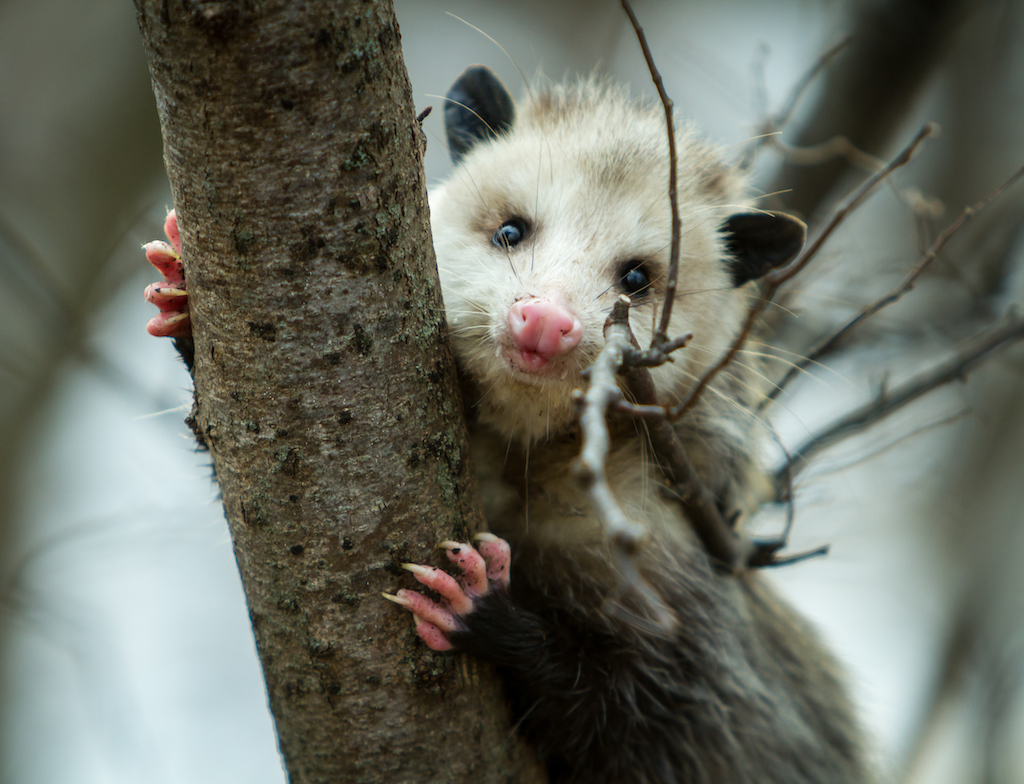
New York’s Time Square may famously drop a crystal ball filled with the dreams and wishes of people from around the globe, but the people of Tallapoosa, Georgia do things a little bit differently on December 31. Every year around 4,000 people gather for the annual Possum Drop, during which a taxidermy opossum named Spencer—not a sparkling crystal ball—makes the midnight descent to ring in the new year.
Lava added 875 acres of new land to Hawaii’s Big Island in 2018.
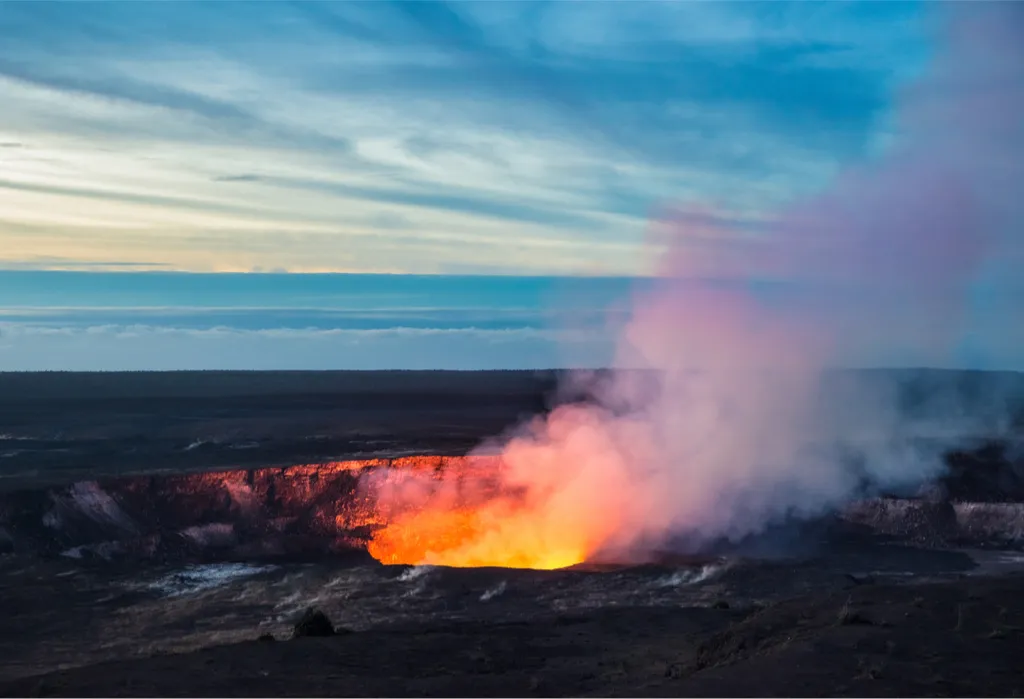
Thanks to its tropical climate and stunning scenery, Hawaii is already a magical place. It can also be a very dangerous place. ABC News reports that as a result of the Kilauea Volcano‘s dramatic eruption that lasted more than 100 days in 2018, 875 acres—about the size of New York City’s Central Park—of new land was created on the Big Island. Kilauea has been erupting continuously since 1983, but never has the amount of new land created been so extreme as it was in 2018.
Idaho may have gotten its name because an aspiring politician lied about its meaning.
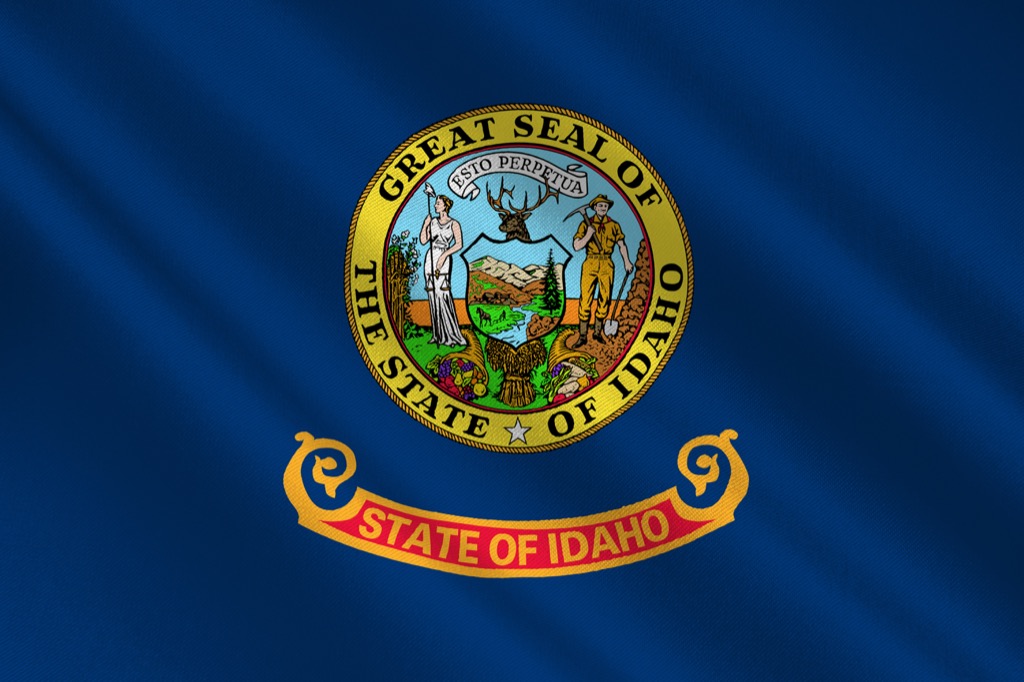
One popular theory of how Idaho got its name suggests that in 1860 a doctor and aspiring politician named George Willing proposed that the new territory, which would later be Colorado, be called Idaho based off a Native American term meaning “gem of the mountains.” The suggestion made it to the U.S. Senate, but just before it was to be ratified, it was discovered that Willing had made the name up. The territory became Colorado, but just a few years later, a new territory was designated and called Idaho–despite the fact that the initial claims of it being a Native American term were proven to be completely false.
Illinois grows more pumpkins than any other state in the country.
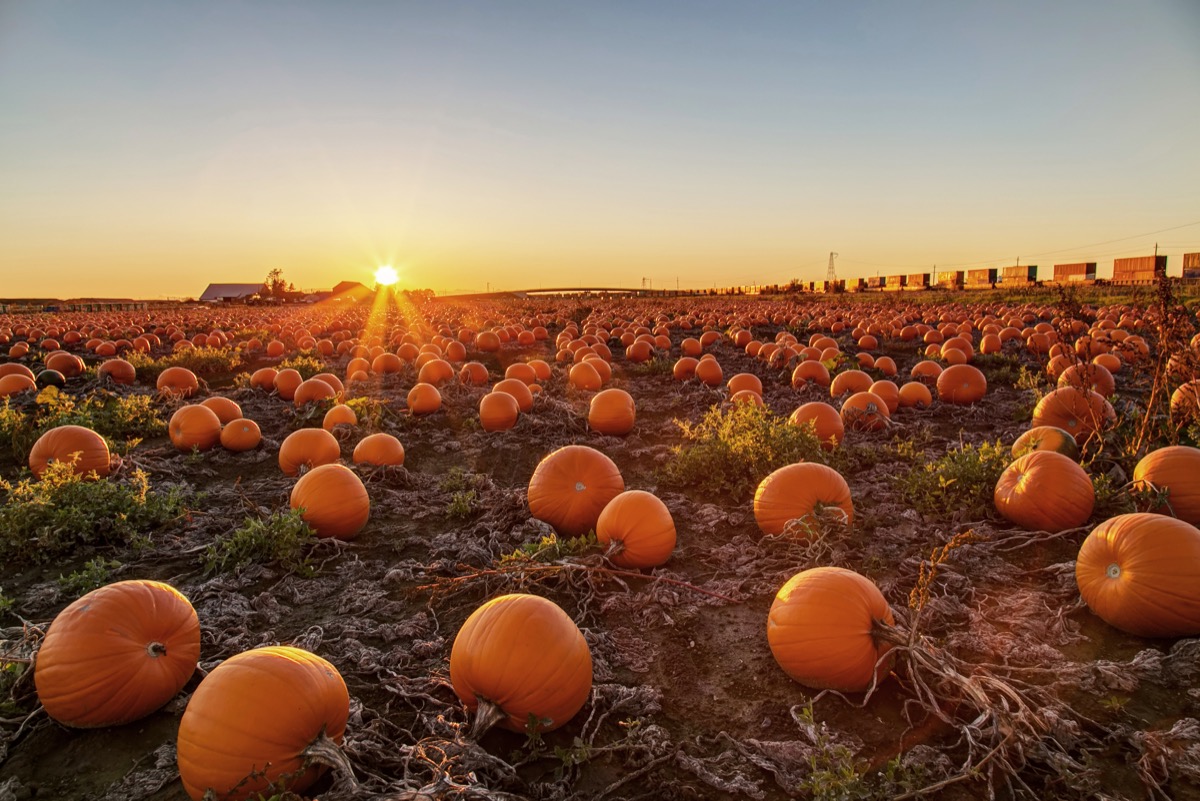
Each year, more than 500 million pounds of pumpkins are harvested in the state of Illinois. And according to the USDA, the state grows more than twice as many pumpkins as each of the four other major players in the pumpkin game: California, Indiana, Pennsylvania, and Texas. The pumpkins that come from the Land of Lincoln are mostly used in manufacturing food items, including pie filling.
Indiana has a state gun—a rifle made in the early 1800s.
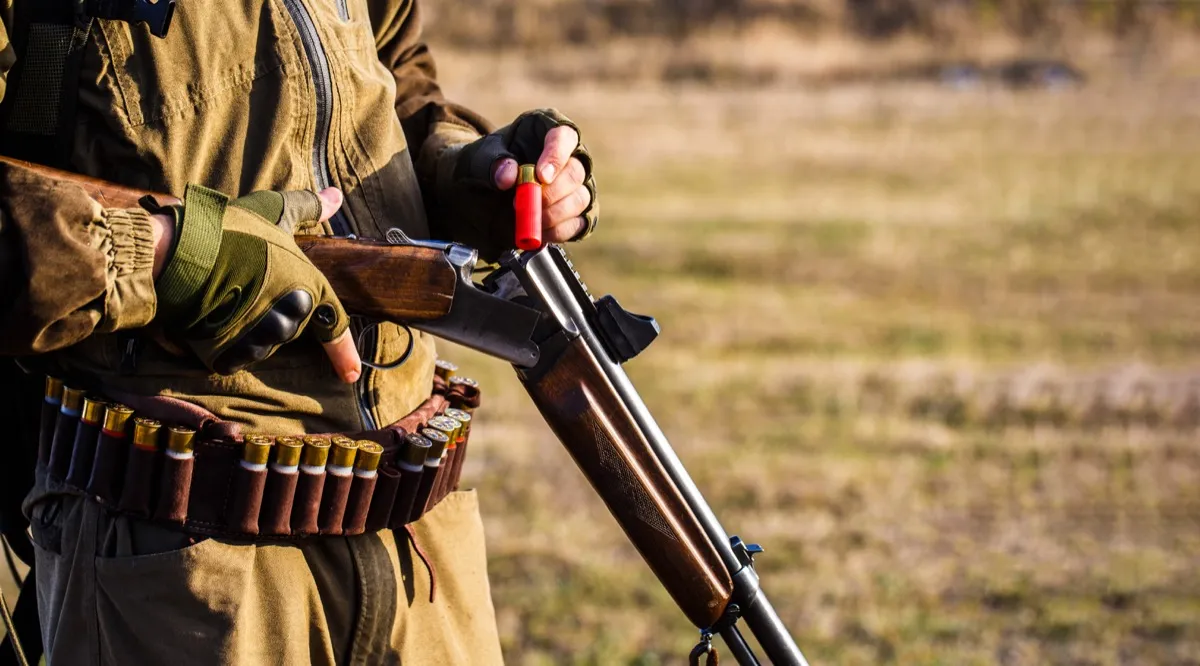
John Small, a sheriff and gunsmith in Vincennes, Indiana, manufactured a series of masterful long rifles around 1803—one of which was owned by William Clark, of Only five of his handmade guns still exist, including the “Grouseland Rifle,” which in 2012 became the official gun of Indiana. The firearm, which has ornate brass detailing, is named after the home of William Henry Harrison, who also lived in Vincennes before becoming president of the United States.
Land-locked Iowa is home to an island city.
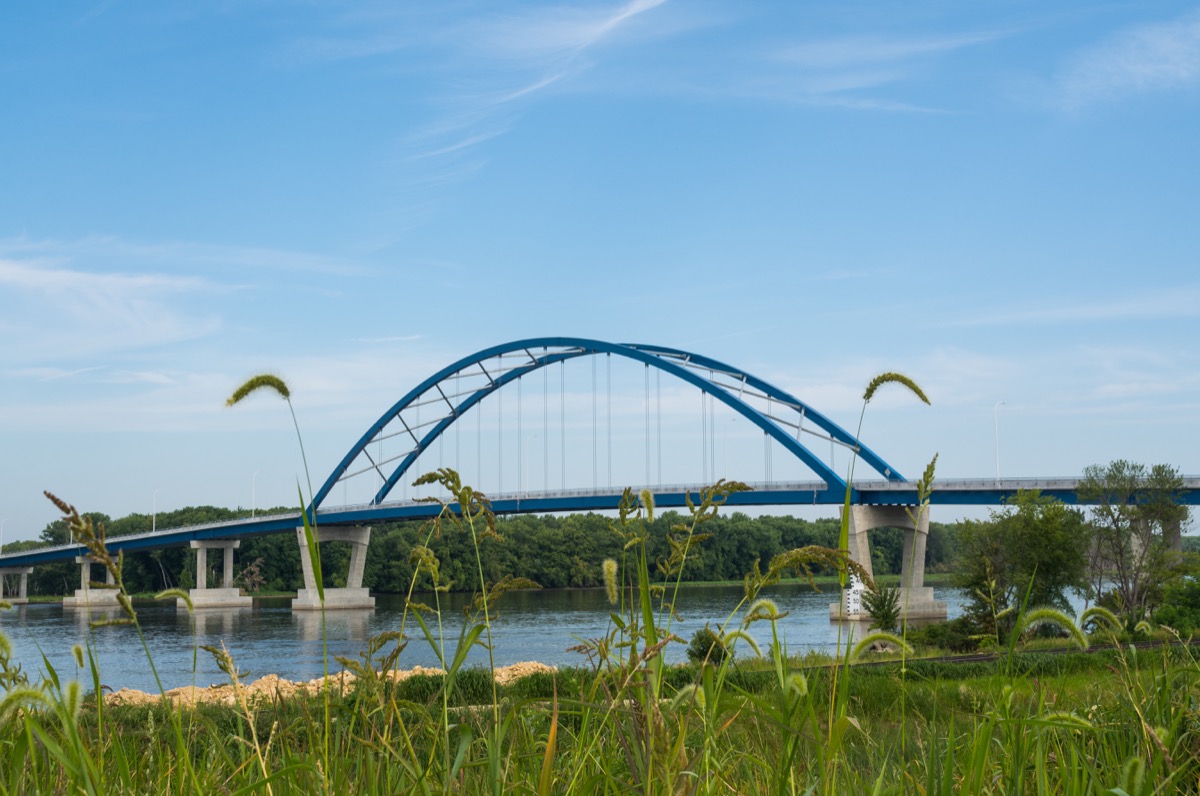
If you were to plan an island getaway, it probably wouldn’t occur to you to opt for a vacation in Iowa. But it turns out that the land-locked state is home to just one island city, called Sabula. Merely a mile long and a quarter of a mile wide on the Mississippi, Sabula wasn’t originally an island at all. The area was separated from the mainland when a lock and dam were built in the 1930s.
The geographical center of the U.S. is in Kansas.
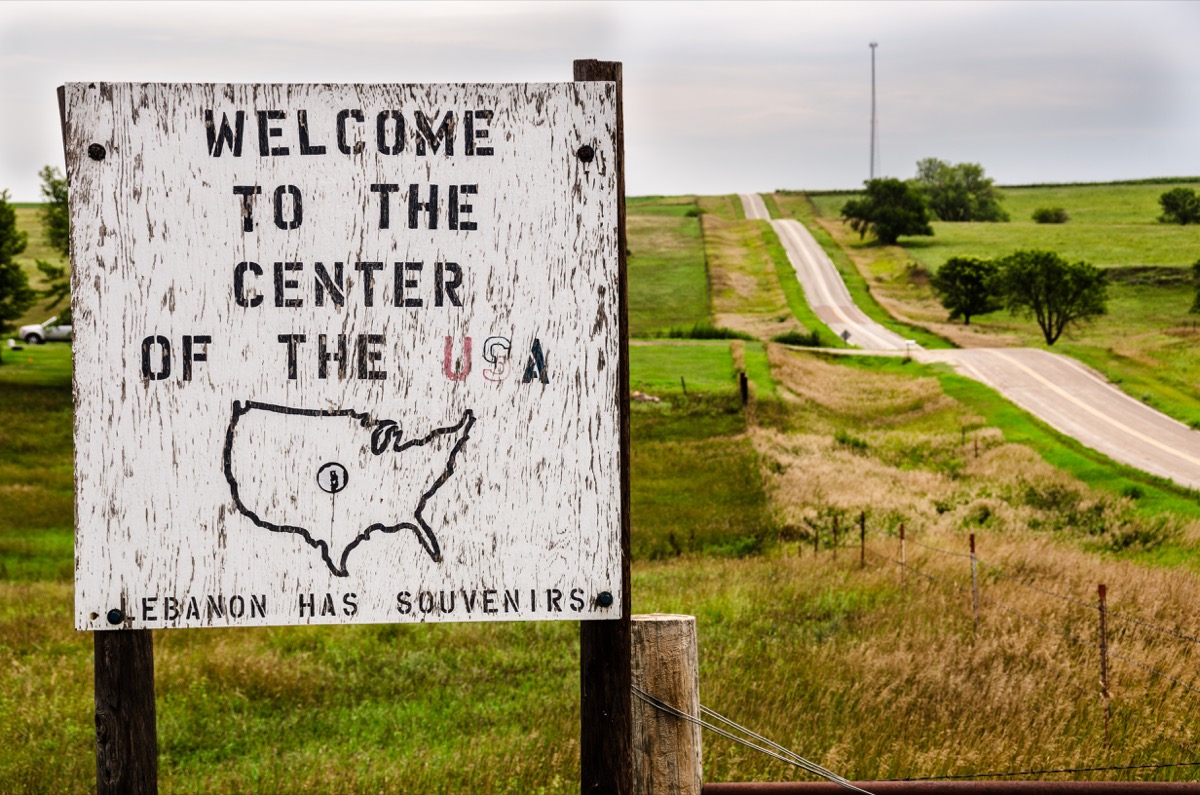
About two miles outside of Lebanon, Kansas, there is a stone marker with a plaque declaring it “The Geographic Center of the United States.” According to the plaque, engineers used data from the U.S. Coast and Geodetic Survey to locate the center of the continental states. A one-room church—the U.S. Center Chapel—was rebuilt on the spot in 2008 after a speeding vehicle destroyed it.
Not everyone agrees with coordinates on this matter, however. Jeopardy champion and all-around wiz Ken Jennings said in 2015 that the calculations from 1959 should be updated with today’s technology. He suggests the center of the states is “is somewhere near Belle Fourche, South Dakota, two full states away from Lebanon.”
The official state dance of Kentucky is clogging.

In 2006, Kentucky designated clogging as the state’s official dance, but the history of the tradition goes back much further. Clogging, according to Appalachian Magazine, is the “fast-paced practice of rhythmically tapping and stomping one’s foot against” against a loud surface. Conventionally, a wooden-soled clog was used, but there is a more modern version—so-called flatfooting—that can be done shoes with leather soles.
Louisiana is the only state with Napoleonic law.

In America, 49 states use a “common law” legal system, but one state does things a little differently. Louisiana follows a “civil law” system which actually goes back to 1804 when it was established by French emperor Napoleon. According to Slate, “Rulings in the French-influenced system derive from the direct interpretation of the law; rulings in the common-law system give greater authority to legal precedent.” That might be the case, but they add that “in practice, the two systems often work the same.”
There is a 40-acre desert in Maine.

Outside of Freeport, Maine, the home to L.L Bean, the unlikely desert exists as a result of poor agricultural practices on a 300-acre, family-run farm. For about 100 years—between 1800 and 1900—the Tuttle family farmed the land and worked the soil so hard that they wore away all of the fertile topsoil, eventually leaving the land barren. The sandy soil that remains has become a tourist attraction that sees as many as 30,000 visitors pass through each year.
The official state sport of Maryland is jousting.
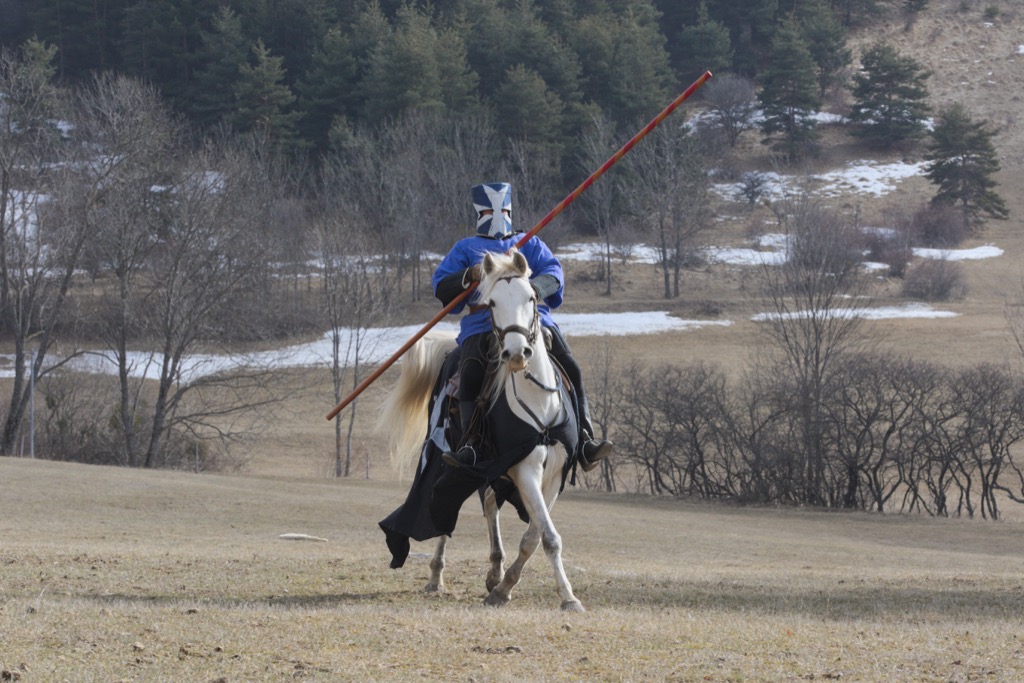
Maryland was reportedly the first state to name an official sport back in 1962, but they didn’t opt for football, baseball, or basketball. Instead, the state chose jousting. Yes, the spectator sport of choice during the Middle Ages in which armored-clad combatants on horseback try to take each other down using long, pointy poles. The Maryland State Archives explains that “jousting tournaments have been held in Maryland since early colonial times but became increasingly popular after the Civil War. Retaining the pageantry and customs of medieval tournaments, modern competitors are called ‘knights’ or ‘maids,’ and many dress in colorful costumes.”
In Massachusetts, you have to sing the whole “Star Spangled Banner” or you’ll be fined.
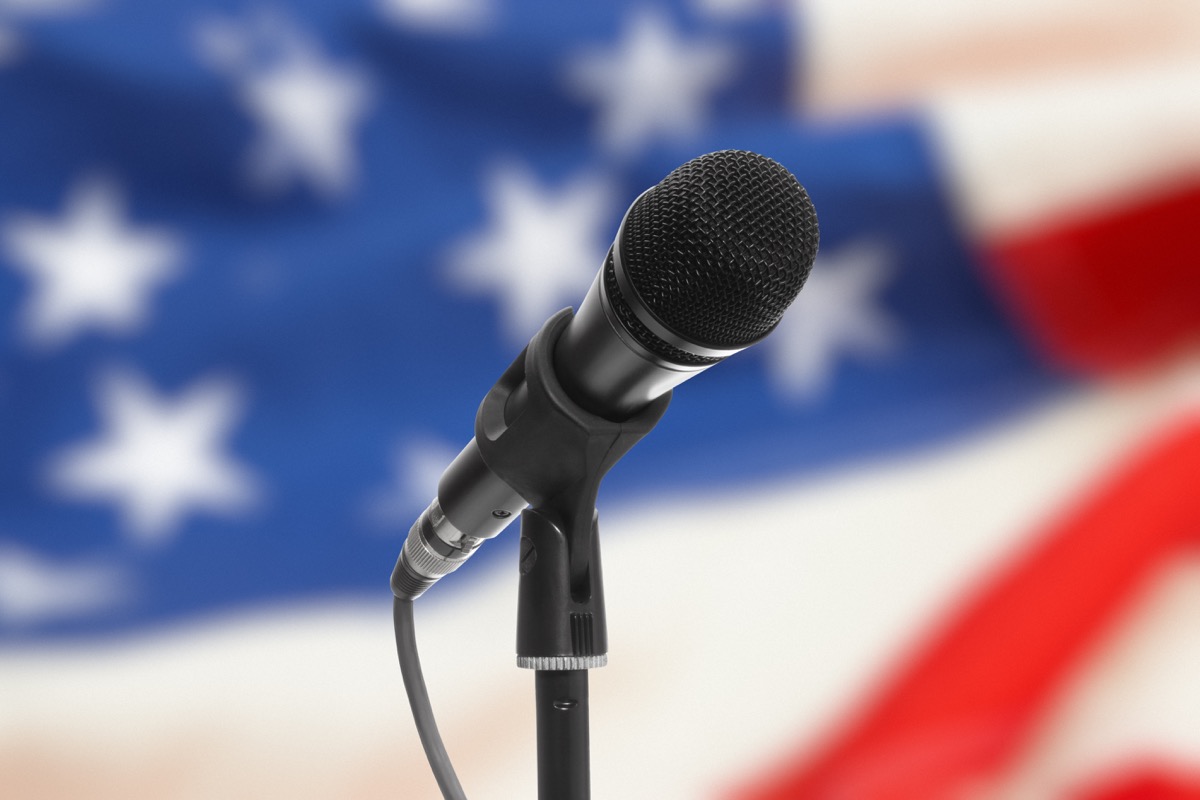
America’s national anthem is not taken lightly in Massachusetts. According to Section 9 of the Bay State’s general laws, anytime the song is played or sang in public it must be treated as a “…whole and separate composition or number, without embellishment or addition…” The law elaborates that the song can’t be played as part of a medley—or a dance mix—in public without risking a fine up to $100.
Michigan has its own Bermuda Triangle-like area.
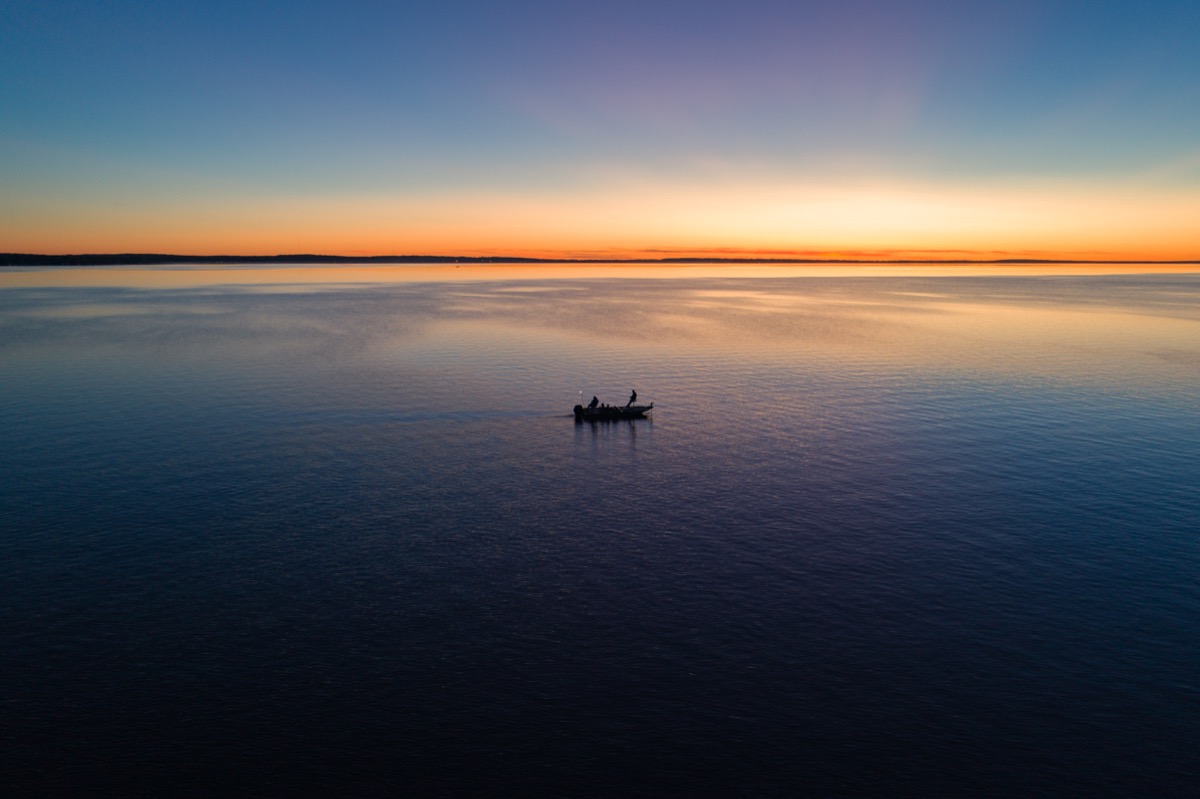
Bermuda isn’t the only place that has an area prone to mysterious misadventures—Michigan also has its own disturbing location that you might want to avoid. The Lake Michigan Triangle has been the scene of unexplained incidents since 1891 when Thomas Hume and his crew of seven sailors disappeared while crossing the lake. It was also the site of a 1921 tragedy in which the Rosa Belle ship turned up without its 11 passengers, but with collision damage—despite the fact that no other damaged ship was found or reported lost at the time. As other stories cropped up, rumors about time portals and UFOs circulated. Obviously, they haven’t been confirmed.
Minnesota is the location of a mysterious waterfall with no known end.
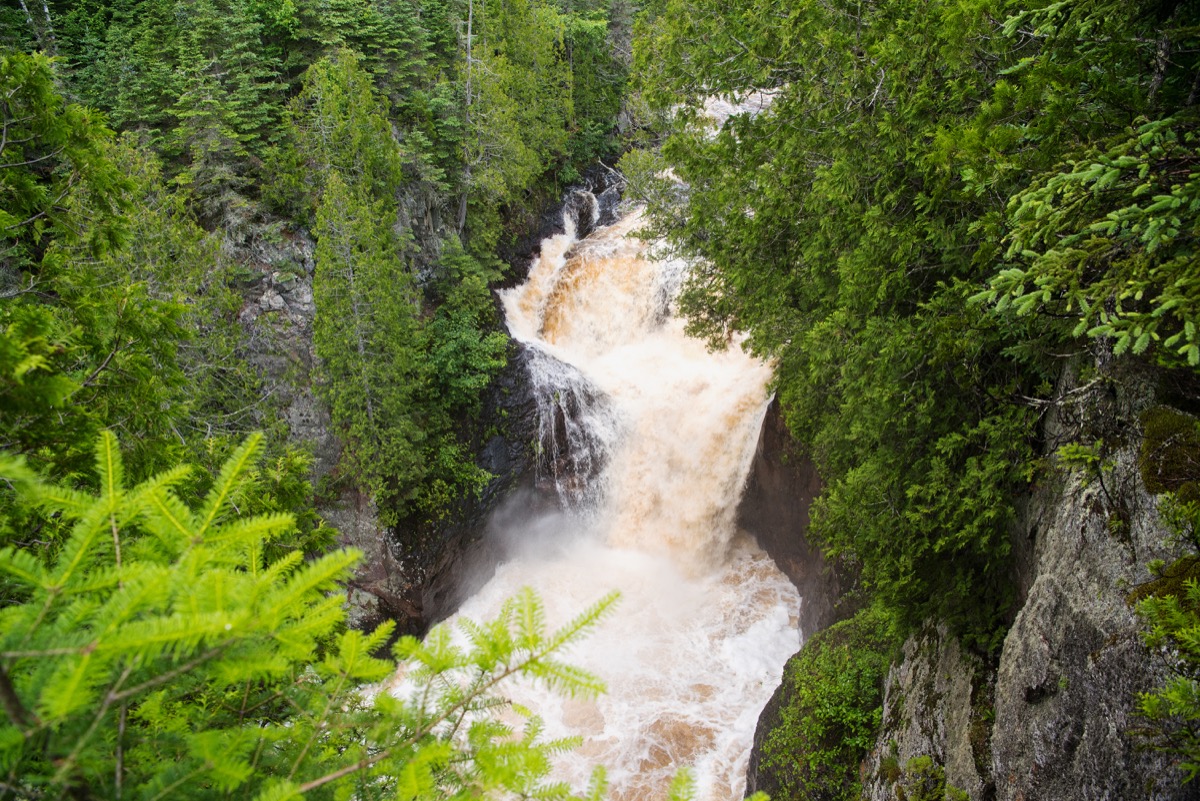
Devil’s Kettle Falls in Judge C. R. Magney State Park has an unexpected feature that’s almost as foreboding as its name. While the fact that the water falls into a dark cavernous hole is creep enough, what makes things even weirder is that no one knows where the water goes from there. In 2017, some scientists decided that the water must end up in the Brule River below the waterfall and wanted to put dye in the stream in order to prove their theory. Unfortunately, they eventually decided not to conduct the test, and so the mystery remains.
The state rock of Mississippi is petrified trees.
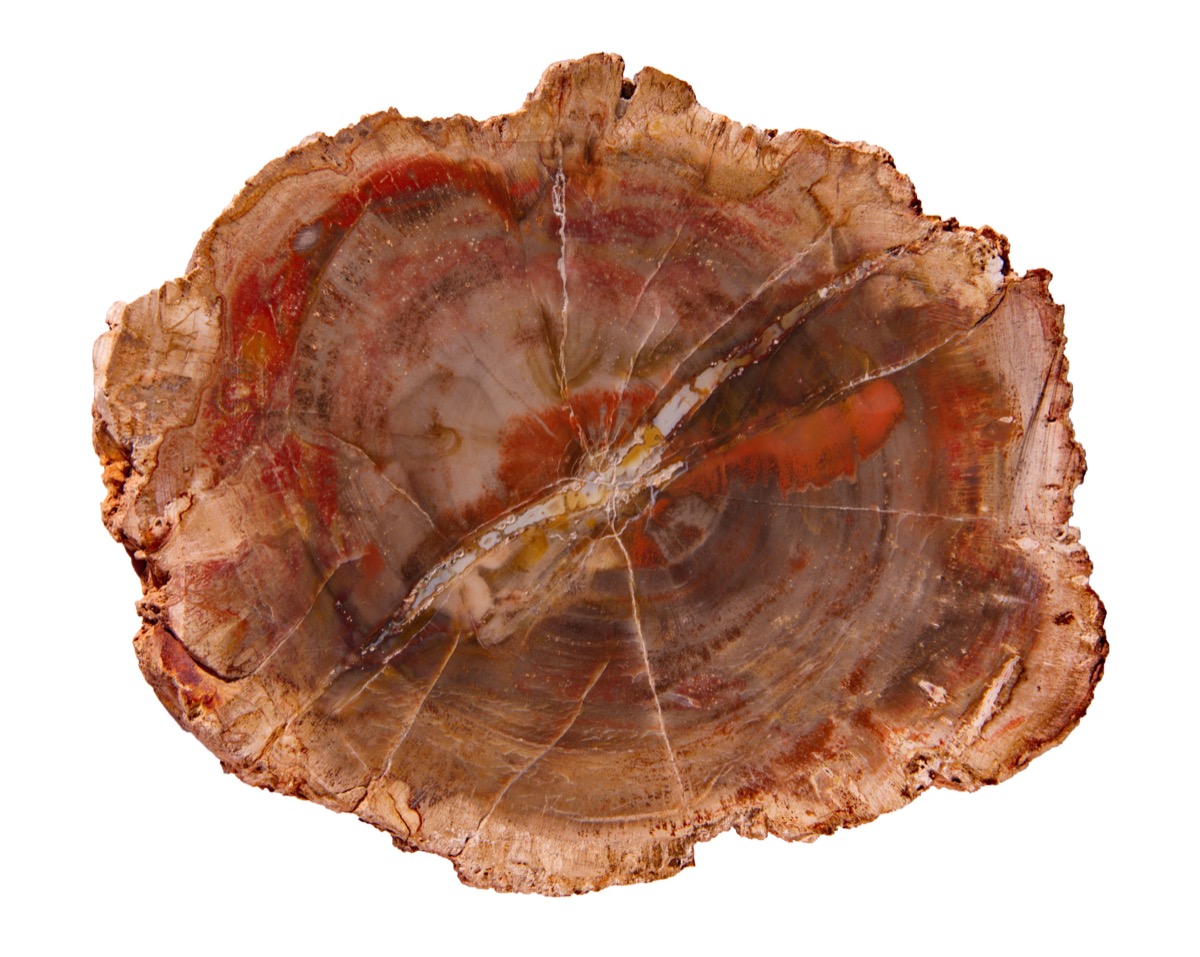
36 million years ago, a flood swept across Flora, Mississippi, knocking down the trees that now make up a petrified forest there. Buried under sediment, the wood of the trees was slowly replaced over the millennia with minerals, creating fossilized versions of the original trees, some of which were more than 100 feet tall. In 1976, officials celebrated the forest by making petrified trees the official state rock.
Missouri has thousands of caves.
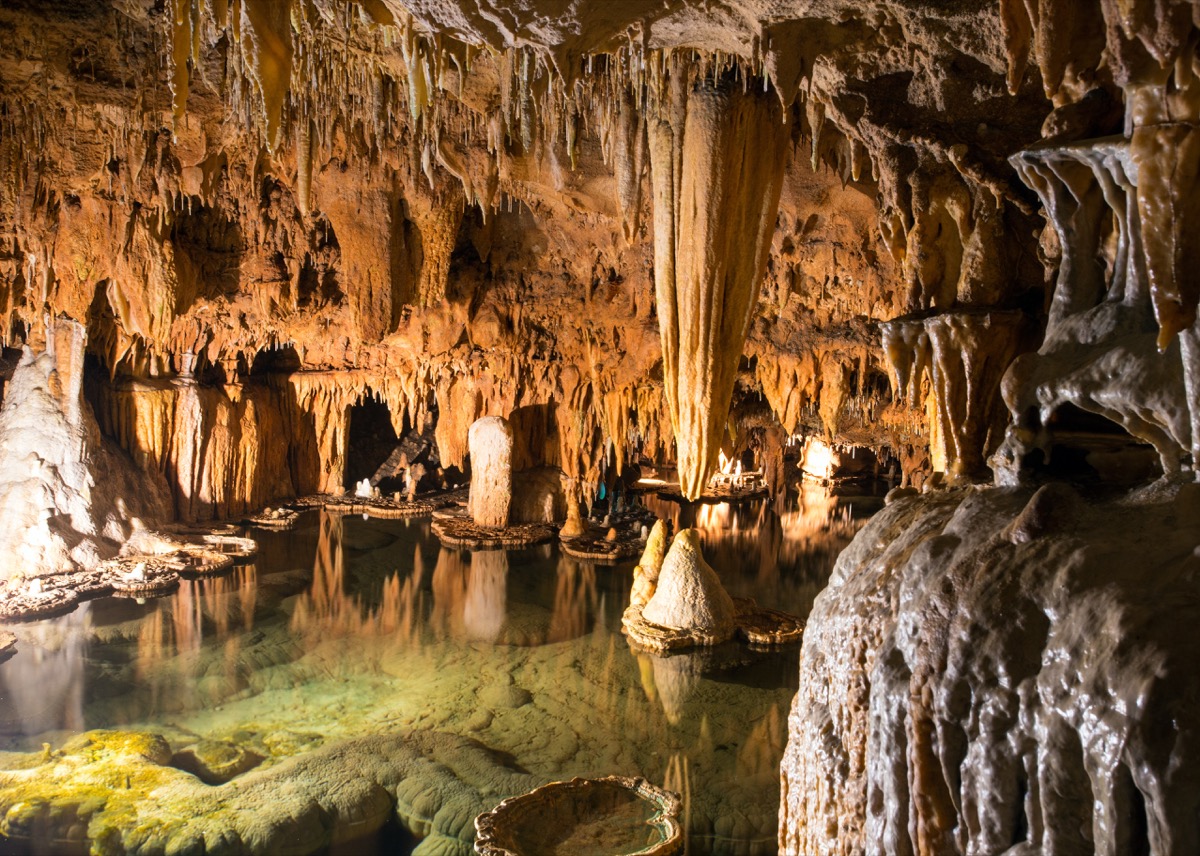
There are more than 6,000 caves in the state of Missouri that you can take driving tours through, others that are illuminated by electric lighting, and still others that have 10-story underground arches. Because of the size and variety of caves across the state, they were once a sheltering place for Native Americans, and then for European settlers. In addition to that, many of the caves are rich in potassium nitrate, which supplied early Americans—and the Confederate Army—with gunpowder.
Montana holds the Guinness World Record for a 100-degree temperature drop in a single day.
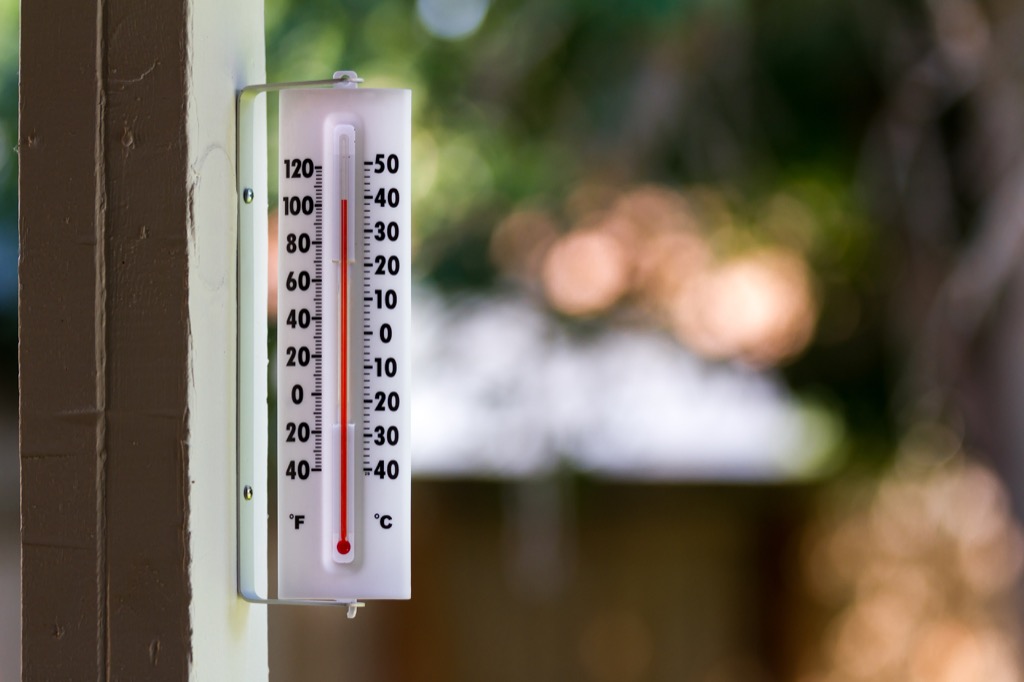
Plenty of states endure wild weather, but Montana once experienced a 100-degree temperature drop within 24 hours. The unusual occurrence earned the state the Guinness World Record for the “greatest temperature range in a day” thanks to the fact that the town of Browning went from 44 degrees Fahrenheit to -56 degrees Fahrenheit in an incredibly short amount of time.
The lieutenant governor of Nebraska commissioned a state navy while the actual governor was out of town.
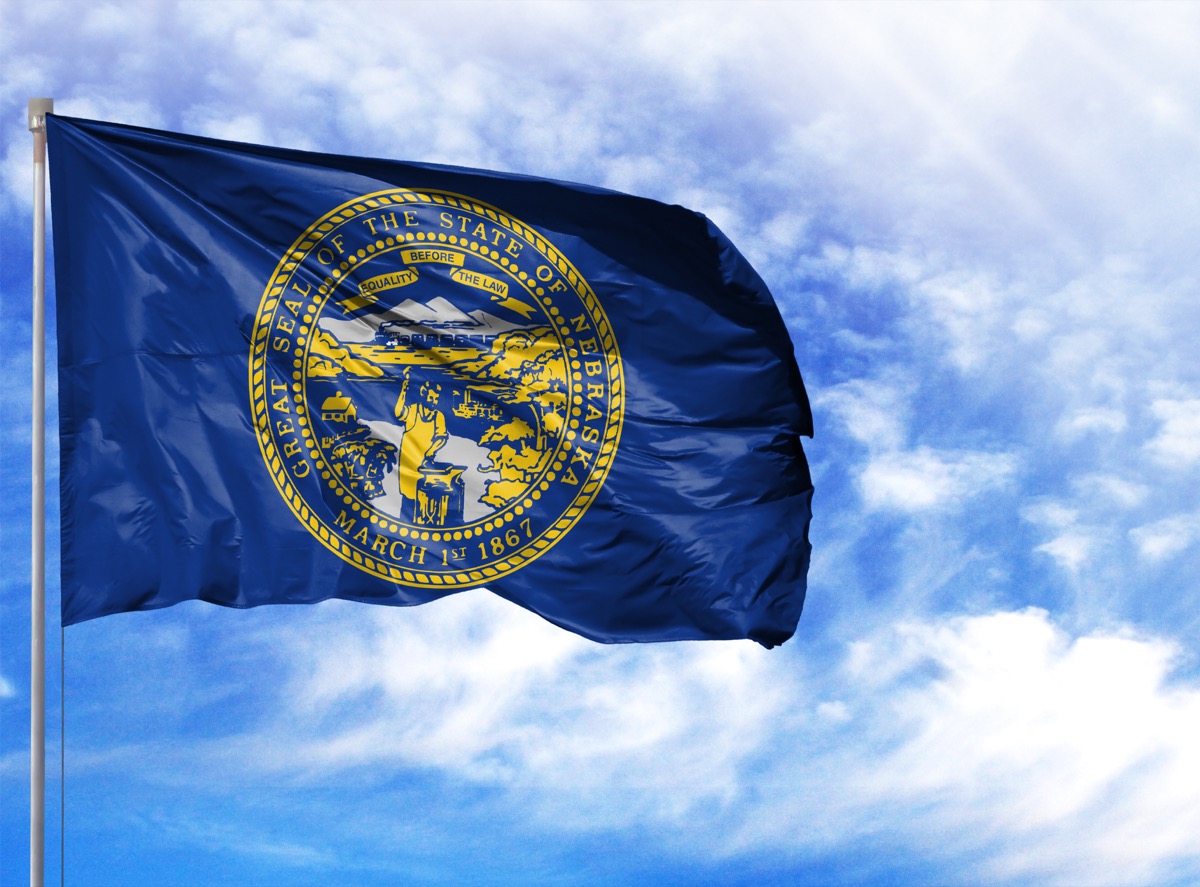
Nebraska may be a land-locked state, but that doesn’t mean it can’t proudly boast a navy. And that’s due to the fact that in 1931, Lieutenant Governor T.W. Metcalfe commissioned the navy while Governor Charles Bryan was away on vacation. But Metcalfe wasn’t interested in fortifying Nebraska’s military force. Instead, he wanted to give his friends mostly meaningless positions as admirals. Nowadays, becoming a “Nebraska Admiral” is one of the highest honors in the state.
Within the state of Nevada lies a micronation ruled as a military dictatorship.

In 1995, the Republic of Molossia was founded in the Nevada desert by Kevin Baugh, who co-founded a previous republic in Oregon in 1977. The 11.3-acre “micronation,” which is, of course, completely surrounded by the United States, has a population of 33 and their own independent bank and post office. There is also a customs office, because President Baugh insists that you bring your passport in order to enter the country. Among other government programs, the Molossian Air and Space Agency was established in 1999 to “explore and understand the universe beyond our own world.”
In New Hampshire, it’s a violation to collect seaweed at night.
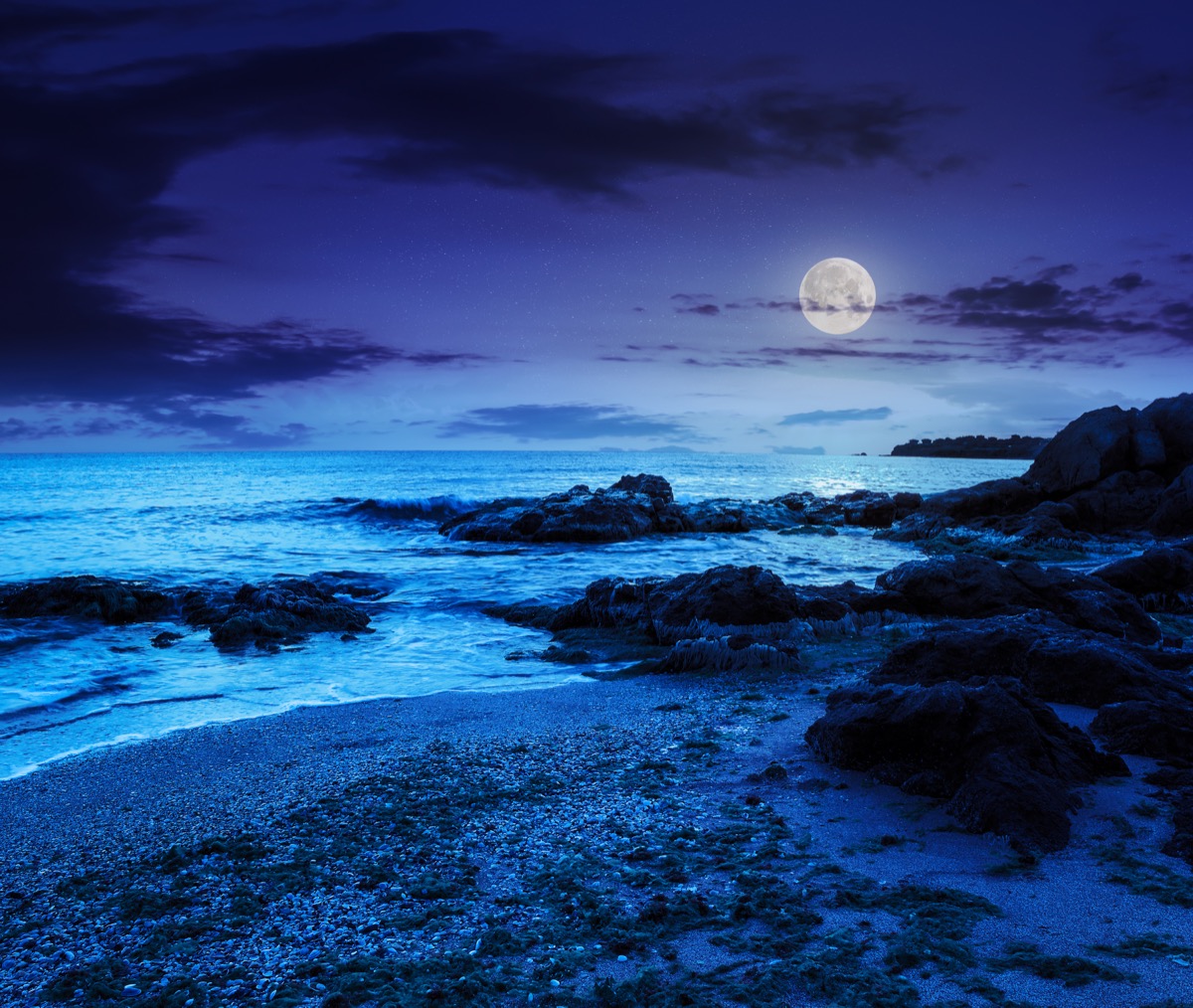
Section 207:48 of New Hampshire’s General Provision As to Fish and Game states that anyone who “shall carry away or collect for the purpose of carrying away any seaweed or rockweed from the seashore below high-water mark” at night is breaking the law. The provision, which was established in 1973 and has been deemed the state’s so-called dumbest law, exists because farmers use seaweed as fertilizer, and anyone collecting it at night might have an unfair advantage in crop production.
Drivers in New Jersey are not allowed to pump their own gas.

When you pull up your car to the pump anywhere in New Jersey, don’t expect to jump out and quickly fill up your own tank. The state is the last state in the country where gas station attendants are legally required to pump all gasoline. The rule, which was established in the Retail Gasoline Dispensing Safety Act of 1949, “ensures compliance with appropriate safety procedures.”
In New Mexico, you can see five different states from one place.
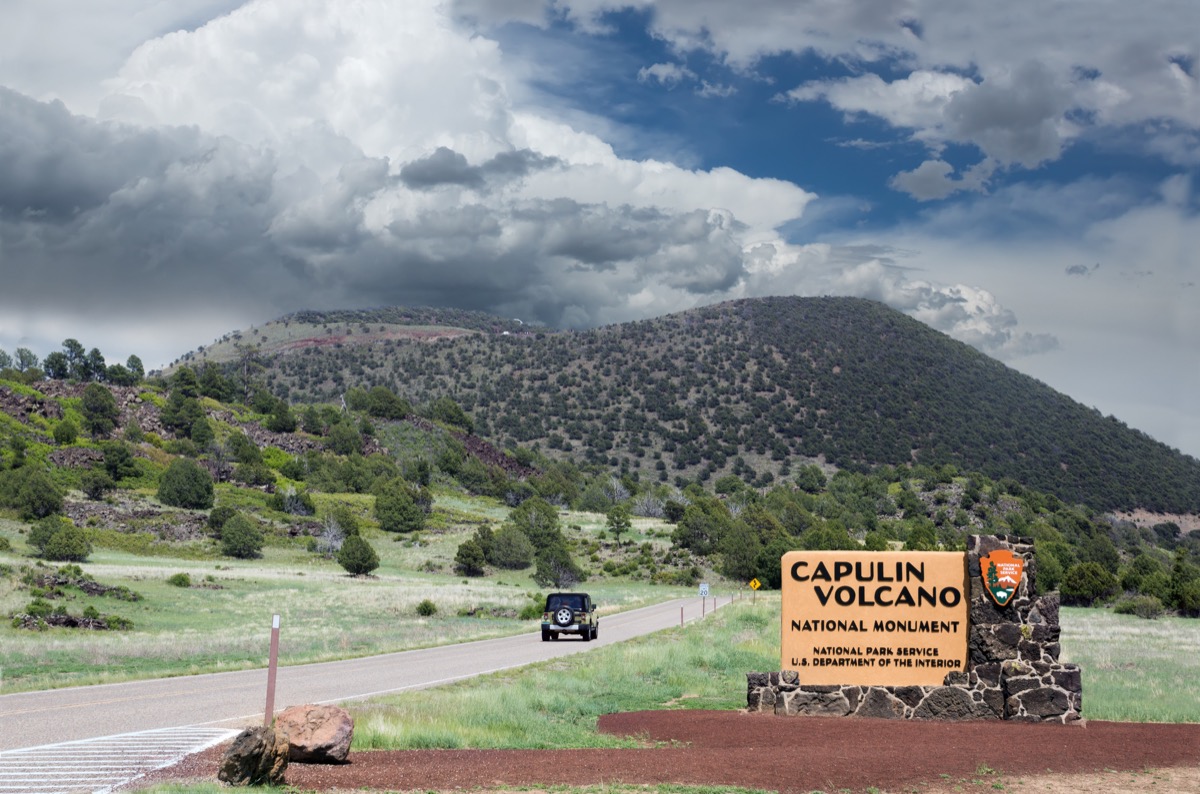
Hopefully, there will be clear skies next time you find yourself in New Mexico and want to see a rare sight. The National Park Service explains that if you take a look around while standing at the highest point on the Capulin Volcano’s crater rim trail, you can almost always see Colorado, New Mexico, and Oklahoma. Eagle-eyed hikers can typically also spot Kansas and Texas.
New York has hosted the Coney Island Mermaid Parade since 1983.

Coney Island is as far as you can ride the subway in the borough of Brooklyn, New York. Once a year, the boardwalks and streets are overrun by the Mermaid Parade, an annual gathering that celebrates the “ancient mythology and honky-tonk rituals of the seaside.” 2020 marks the 38th year of annual parade, which is touted as being noncommercial and invented by artists, features individuals dressed (or undressed) of all manner of aquatic life, from lobsters to sharks to octopi. And yes, there are a lot of mermaids.
North Carolina hosted the National Hollerin’ Contest for almost 50 years.

Before phone lines ran through rural North Carolina, there was a need for people to communicate across great distances with their voices alone. Need a midwife in the middle of the night? You’d have to “holler” loud enough with a specific call for the neighbors to hear you and pass it on. Gone are the days of necessity, but from 1969 to 2016, a National Hollern’ Contest was hosted in the town of Spivey’s Corner. There may be a resurrection of the contest at some point, but for now, you can hear some of the winners and competitors on NPR and PBS, among other places.
From space, it looks like there’s a major city in North Dakota where there isn’t one.
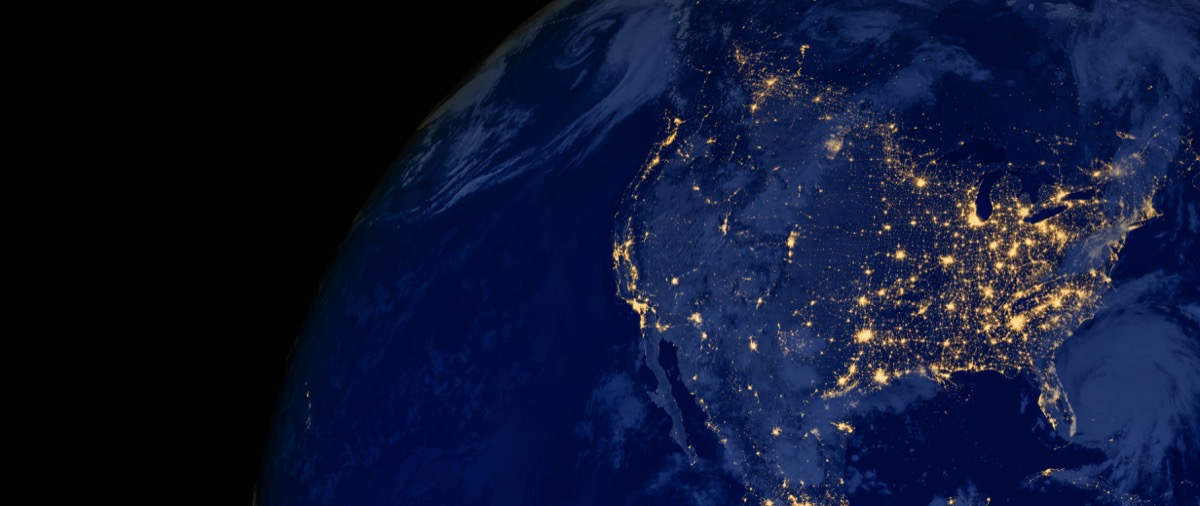
Around 2007, images from space of North Dakota at night showed what appeared to be an abundance of lights from a large city. The only issue was that there wasn’t (and isn’t!) a large city in that particular area. It turned out a new oil and gas field was emitting so much light it took on the appearance of a major metropolitan hub.
In Ohio, it’s illegal to catch a mouse without a hunting license.
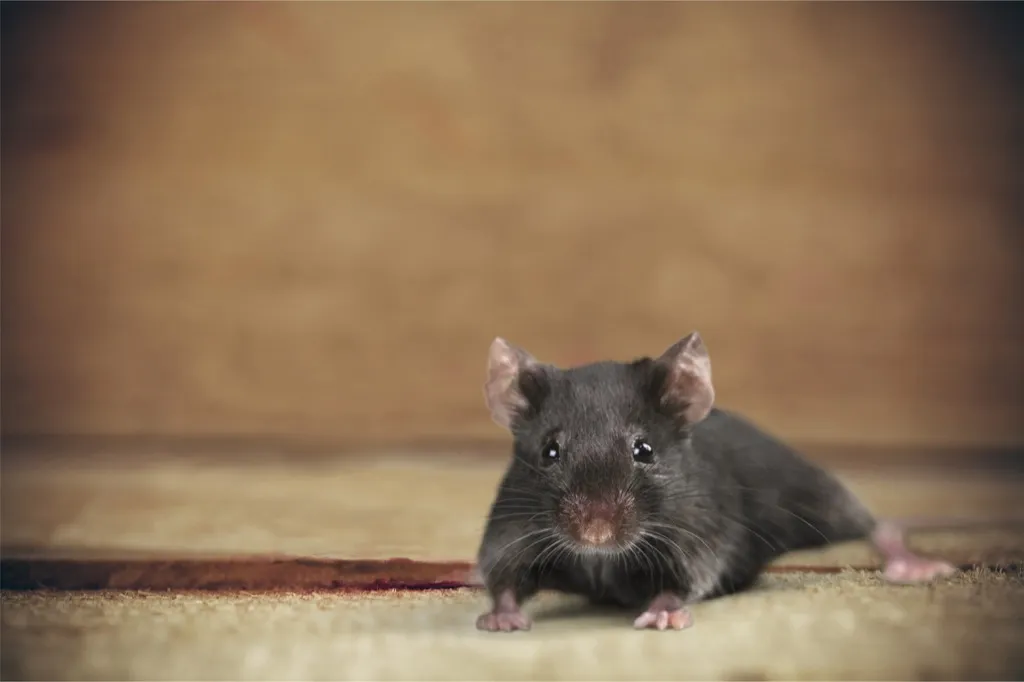
There are some pretty peculiar and ridiculously random laws around the world and that includes one rodent-related regulation in Cleveland, Ohio. If there’s a mouse in your home, you better make sure you have the appropriate paperwork before you set a trap because it’s illegal to catch mice without the proper permit. Make sure you inform your cat, too.
Oklahoma is the only state to have a state meal.
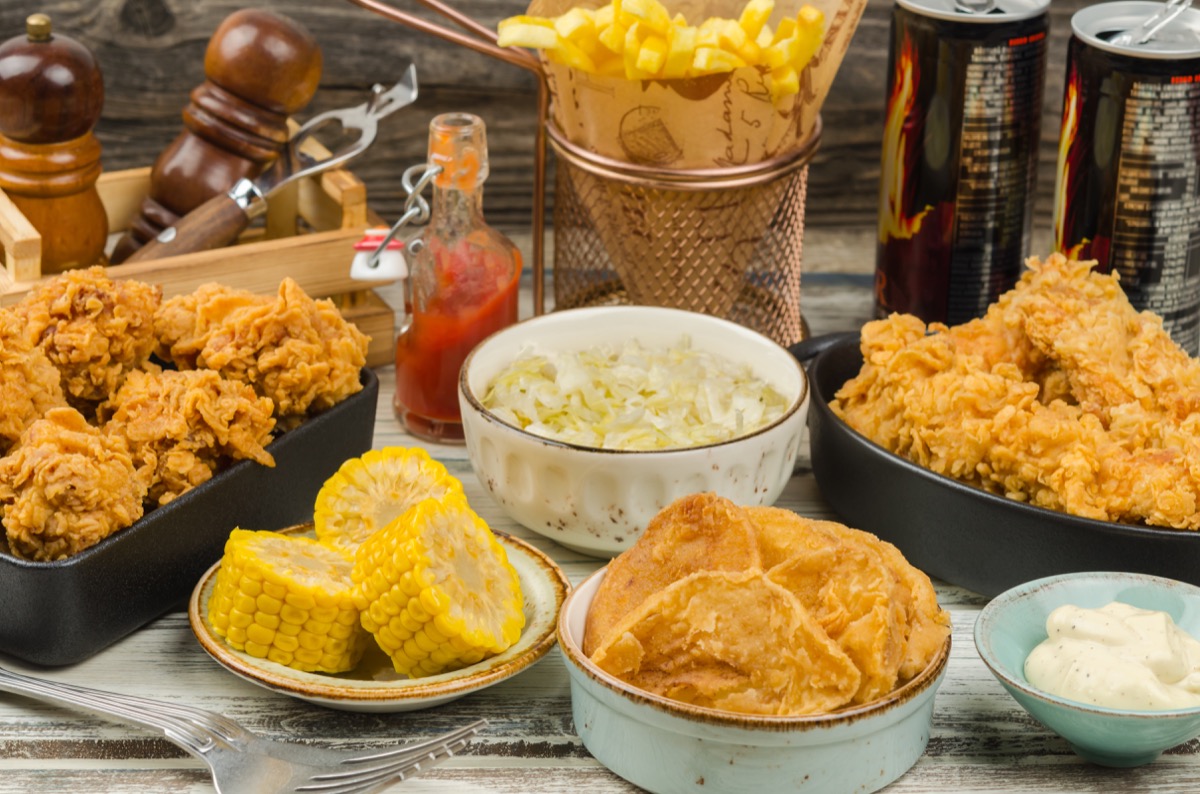
Florida has oranges, Georgia has peaches, and Oklahoma has a ten-course meal. In addition to having a state fruit—the strawberry—and a state vegetable—the watermelon—the Sooner state goes above-and-beyond any other state by setting the table for an official state meal. The components are from across the state, and the official list, which was ratified in 1988, even includes state-chosen restaurants.
The meal is hearty and it includes chicken fried steak from June’s Restaurant in Checotah, corn bread from Big Sky Bread Company in Oklahoma City, and grits from Ozzie’s Diner in Norman. What’s for dessert? Pecan pie from Field’s Pies in Pauls Valley.
Oregon is home to the “only leprechaun colony west of Ireland.”
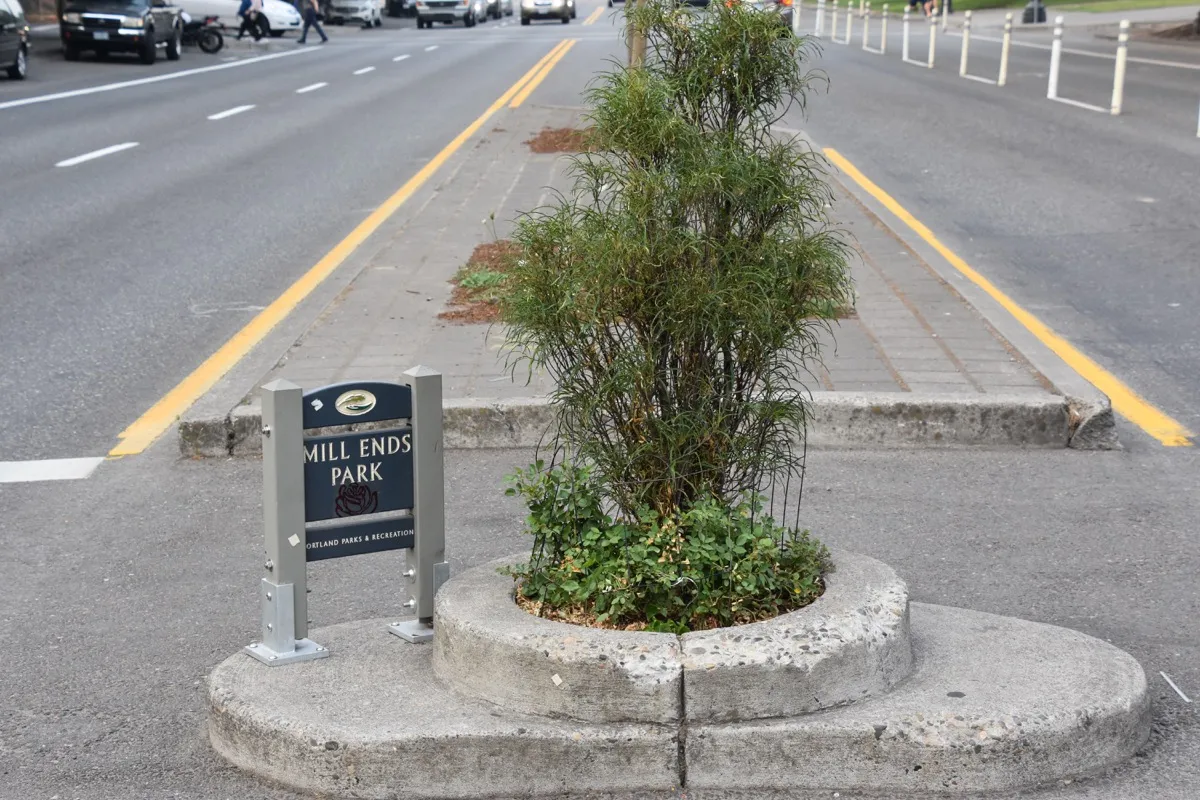
Ireland isn’t the only place where you can look for leprechauns. Those who are hoping to get lucky and spot one of the gold-carrying characters can head to Oregon’s Mill Ends Park, which is the “only leprechaun colony west of Ireland.” That’s according to Dick Fagan, the journalist who established the delightful spot and is also, apparently, the only person who can see the creatures, including their leader, head leprechaun Patrick O’Toole.
Pennsylvania is misspelled on the Liberty Bell.
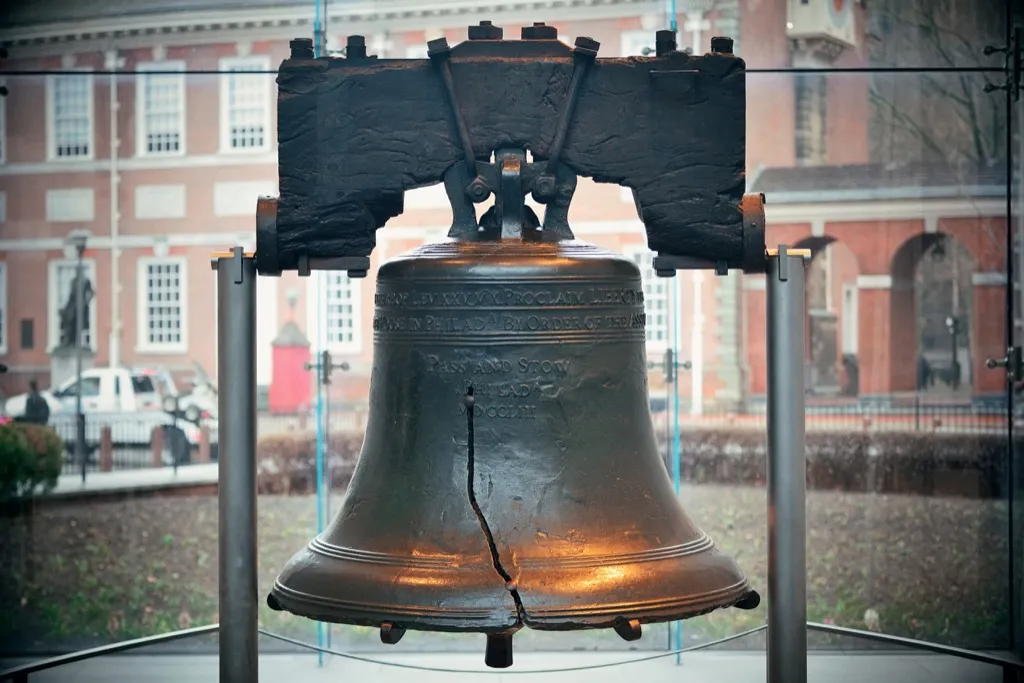
Pennsylvania may not be the easiest state name to spell, but that’s not the reason why it’s written the wrong way on the famous Liberty Bell. When the bell was commissioned in 1751 to commemorate the state’s original constitution, the exact spelling of Pennsylvania wasn’t quite official and a common spelling hadn’t been accepted by the general public yet. That’s why the message on the bell reads: “By Order of the Assembly of the Province of Pensylvania for the State House in Philada.”
Rhode Island isn’t the state’s full name.
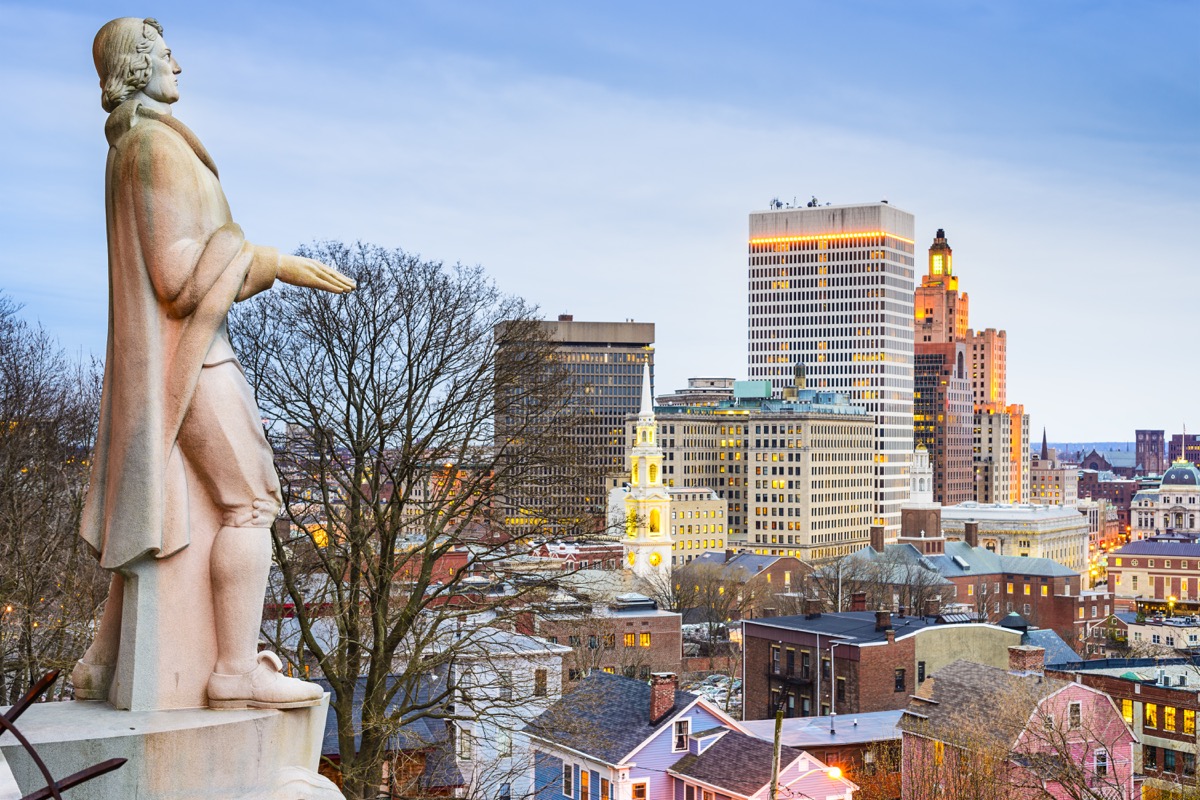
And residents should be thankful for that. The state, which is the smallest one in the entire country, also boasts the longest name of them all. Its official title is the “State of Rhode Island and Providence Plantations.”
There’s an island in South Carolina that is home to 4,000 Rhesus monkeys.

There’s a 4,289-acre island off the coast of South Carolina where humans aren’t allowed to travel. Morgan Island is home to a colony of as many as 4,000 transplanted Rhesus monkeys (stats about the size of the population vary), who have had their run of the island since 1979. The monkeys, who are native to Asia, are owned by the National Institute of Allergy and Infectious Diseases, who use the colony for biomedical research.
In parts of South Dakota it is unlawful to create static between 7 a.m. and 11 p.m.

Stop! Take that balloon away from your hair and place it on the ground. According to section 9.32 of the Huron, South Dakota municipal code, it is unlawful to create static electricity between the hours of 7 a.m. and 11 p.m. Why, you ask? The rule states that static can “…interfere with television or radio broadcast receiving apparatus…” Exceptions can be made for medical necessities, including x-rays, as long as the machinery avoids “unnecessary” static.
Tennessee has 10 official state songs.
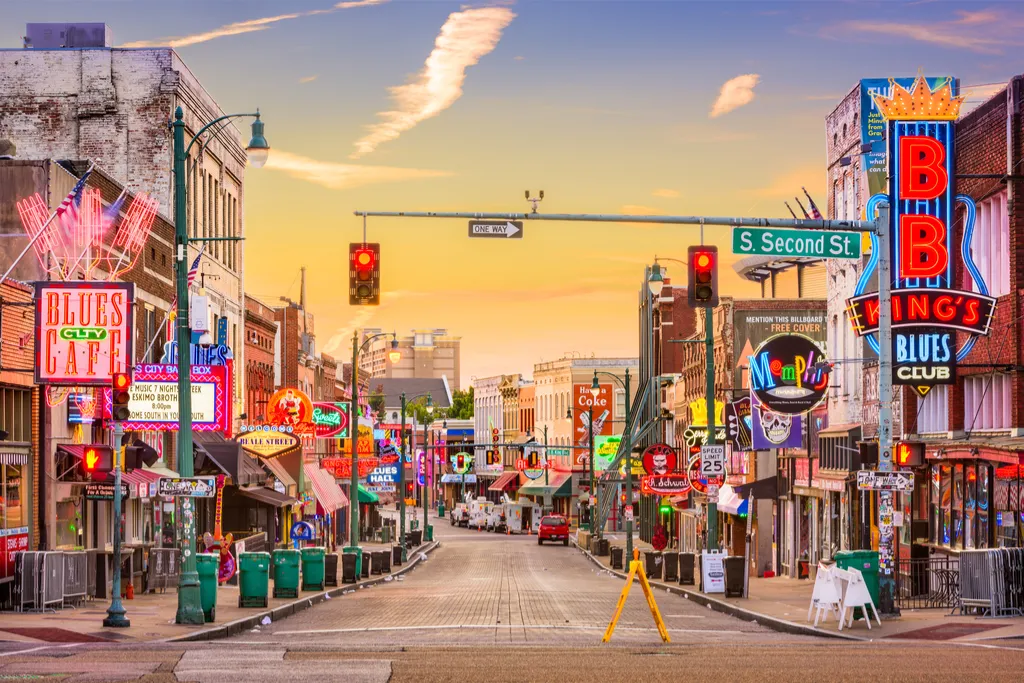
Tennessee is certainly a musical state, which may be why it has 10 official songs. If you’d like to make sure you know them all, cue up “Tennessee Waltz,” “Rocky Top,” “The Pride of Tennessee,” “When It’s Iris Time in Tennessee,” “Smoky Mountain Rain,” “My Tennessee,” “Tennessee (1992),” “A Tennessee Bicentennial Rap: 1796-1996,” “Tennessee (2012),” and finally ,“My Homeland, Tennessee.”
The weight of catfish eaten in Texas every year is equal to the weight of nearly seven Eiffel Towers.

The metal frame of the Eiffel Tower weighs 7,300 tons (around 16 million pounds). That means six and a half Eiffel Towers would weigh around 104 million pounds. While that may seem like an astronomically high number, it’s still 5 million pounds short of the 109 million pounds of catfish eaten in Texas every year.
Utah is home to one of the largest living organisms.
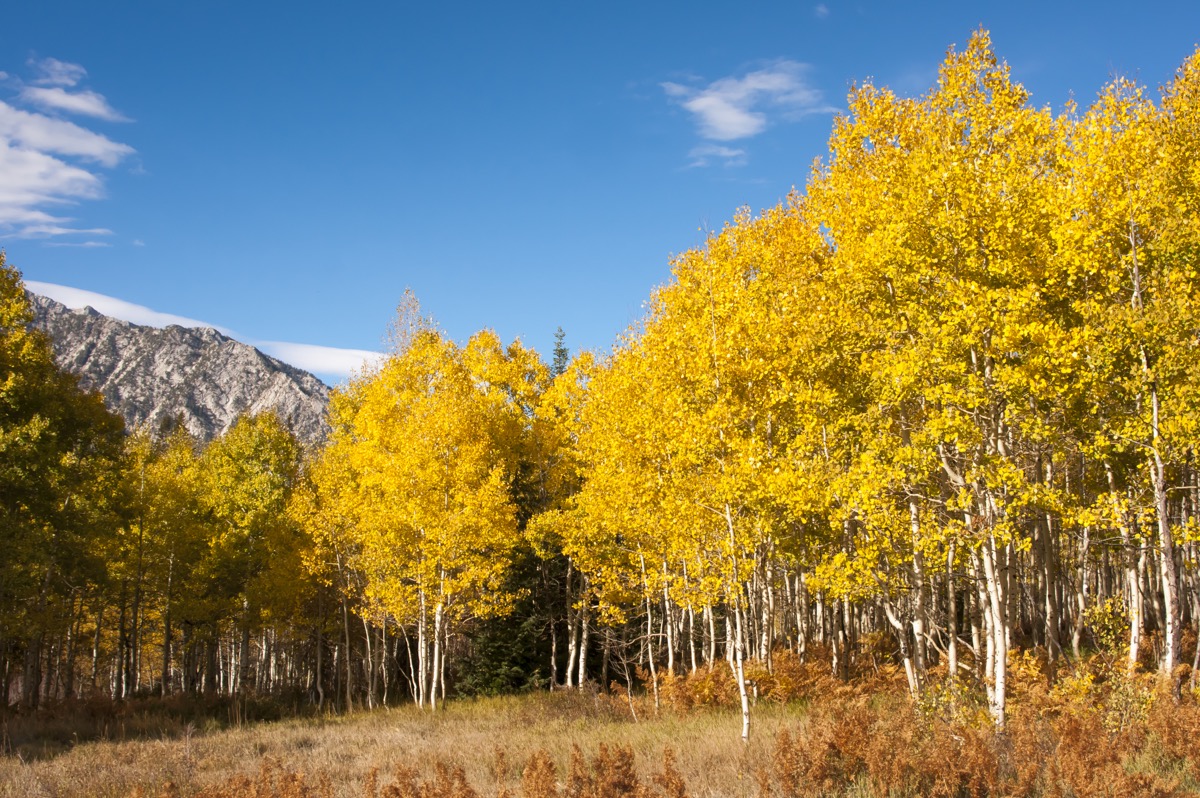
Can’t see the forest for the trees? Would it be easier if the entire forest was actually a single tree? In Fishlake National Forest, about 47,000 trees are living off the same root system, making them one astonishing large organism. The grove of quaking aspen trees is named “Pando,” Latin for “I spread,” and it covers 107 acres of forestland. The growth started, according to experts at the U.S. Forest Service, at the end of the last ice age. The 13-million–pound organism is struggling to battle insects and disease.
Vermont has its own version of the Loch Ness Monster in Lake Champlain.
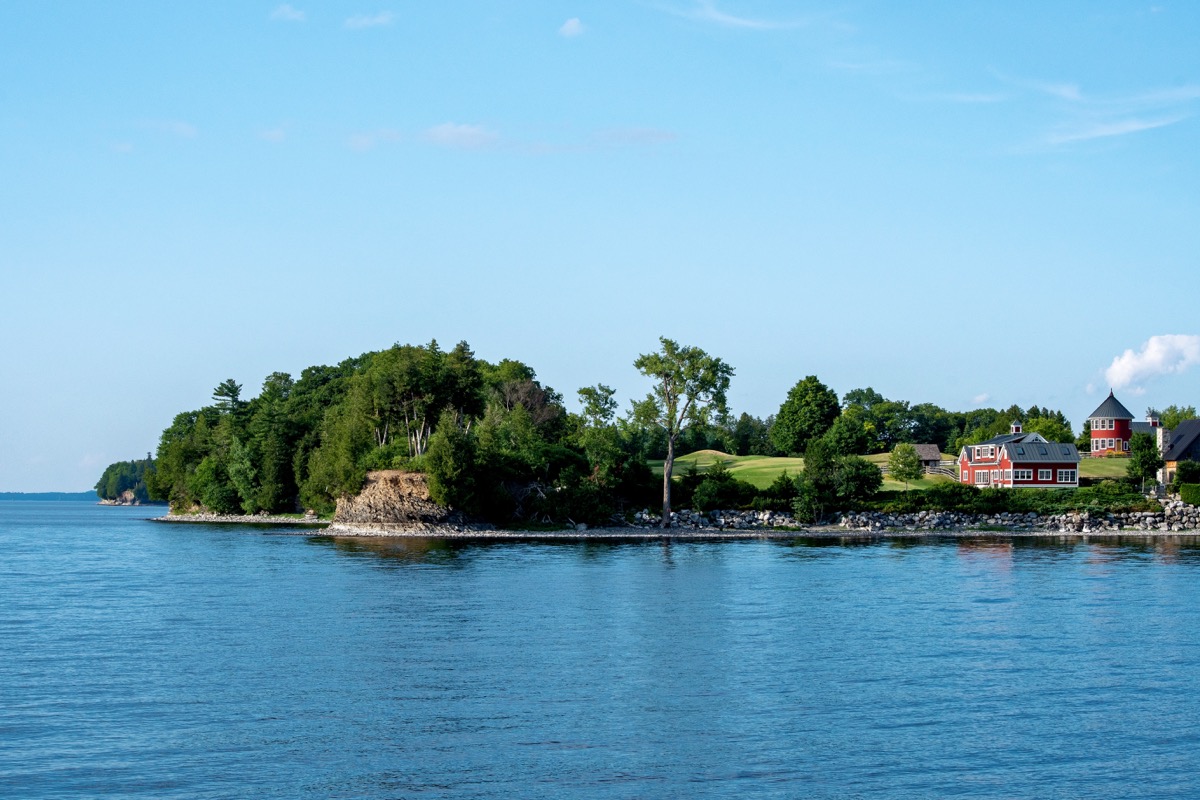
If you ever visit Vermont’s Lake Champlain, keep an eye open for the state’s Loch Ness Monster-like creature. Known as “Champ” by locals and called “Tatoskok” by the area’s Abenaki and Iroquois Native American tribes, historians think that those who claim to have seen the animal may have spotted a garfish (a 30-inch slender fish with sharp teeth), something that is often used to explain Nessie’s possible existence as well.
Some residents of a Virginia island speak with what sounds like a British accent.

On Virginia’s Tangier Island, many of the residents are direct descendants of the British settlers who arrived on the island hundreds of years earlier. And due to the fact that they’ve stayed close to home and the island is somewhat isolated, they still speak with a similar accent. Journalist Kate Kilpatrick explains that “some people call it an ‘Elizabethan’ or a ‘Restoration-era English’ accent.”
Most of the hops in America are grown in Washington.
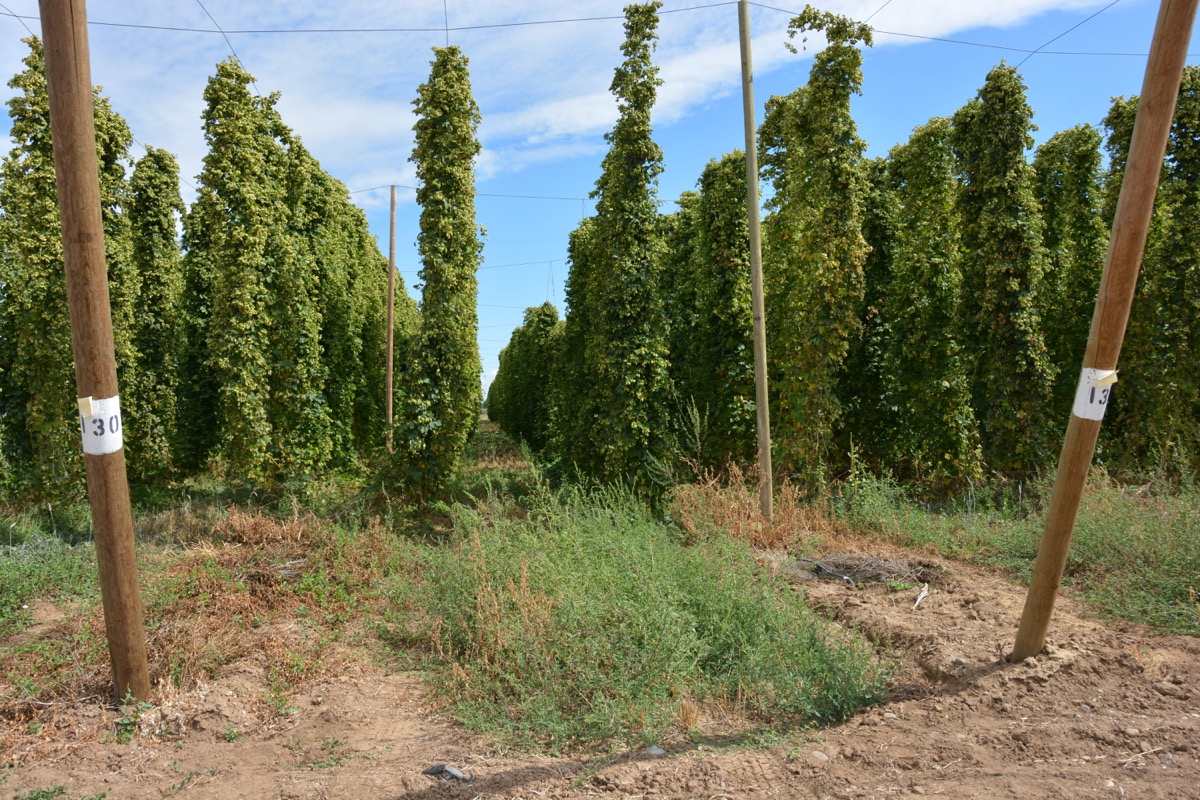
In 2019, 82 million pounds of hops were produced by Washington state, which was about 73% of the total 112 million pounds produced across America. For comparison, Oregon, the second-biggest producer, grew about 13 million pounds or about 12%. The Yakima Valley in southeast Washington has a perfect combination of conditions for growing the beer ingredient. The climate, the soil, the irrigation, and the decades of family knowledge all make the hop harvest in Washington the biggest in America.
A small town in West Virginia is known as the quietest place on earth.

The 143 people who live in Green Bank, West Virginia, can’t listen to the radio or use their cell phones, because the town has a ban against radio waves. Is it populated by technophobes or luddites? No, the town lies in the middle of the National Radio Quiet Zone, where there is a ban on wireless signals in a 13,000-square mile zone around the world’s largest radio telescope. The astronomers at the two-acre-wide Robert C. Byrd Green Bank Telescope need absolute silence. Cell phones emit enough noise to “swamp the sounds that are teaching the astronomers how the milky way was formed,” according to CNN.
Wisconsin is responsible for nearly all the ginseng grown in the U.S.

When you think of Wisconsin, you probably think about cheese. But in a state known for its love of dairy, Wisconsin’s Marathon County produces 95 percent of all ginseng grown in the U.S., which is why the town of Wausau now hosts the International Wisconsin Ginseng Festival.
There are only two escalators in all of Wyoming.

Escalators are usually a common sight in malls and office buildings, but not in Wyoming. That’s because there are reportedly only two sets of escalators in the entire state, according to The Atlantic. Both in the city of Casper, one is located in the First National Bank building and the other is in the Hilltop National Bank.
Additional reporting by Adam Shalvey.